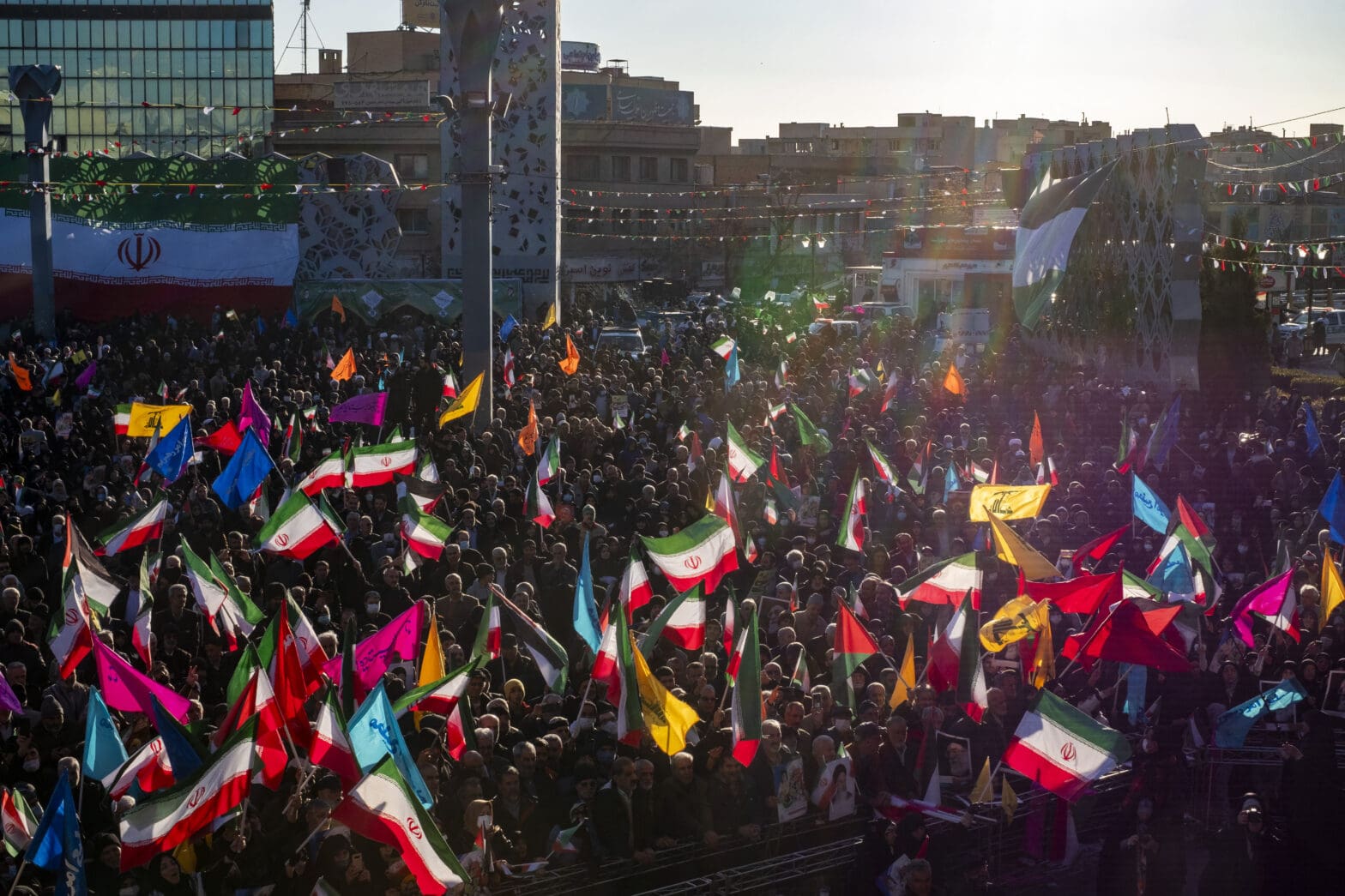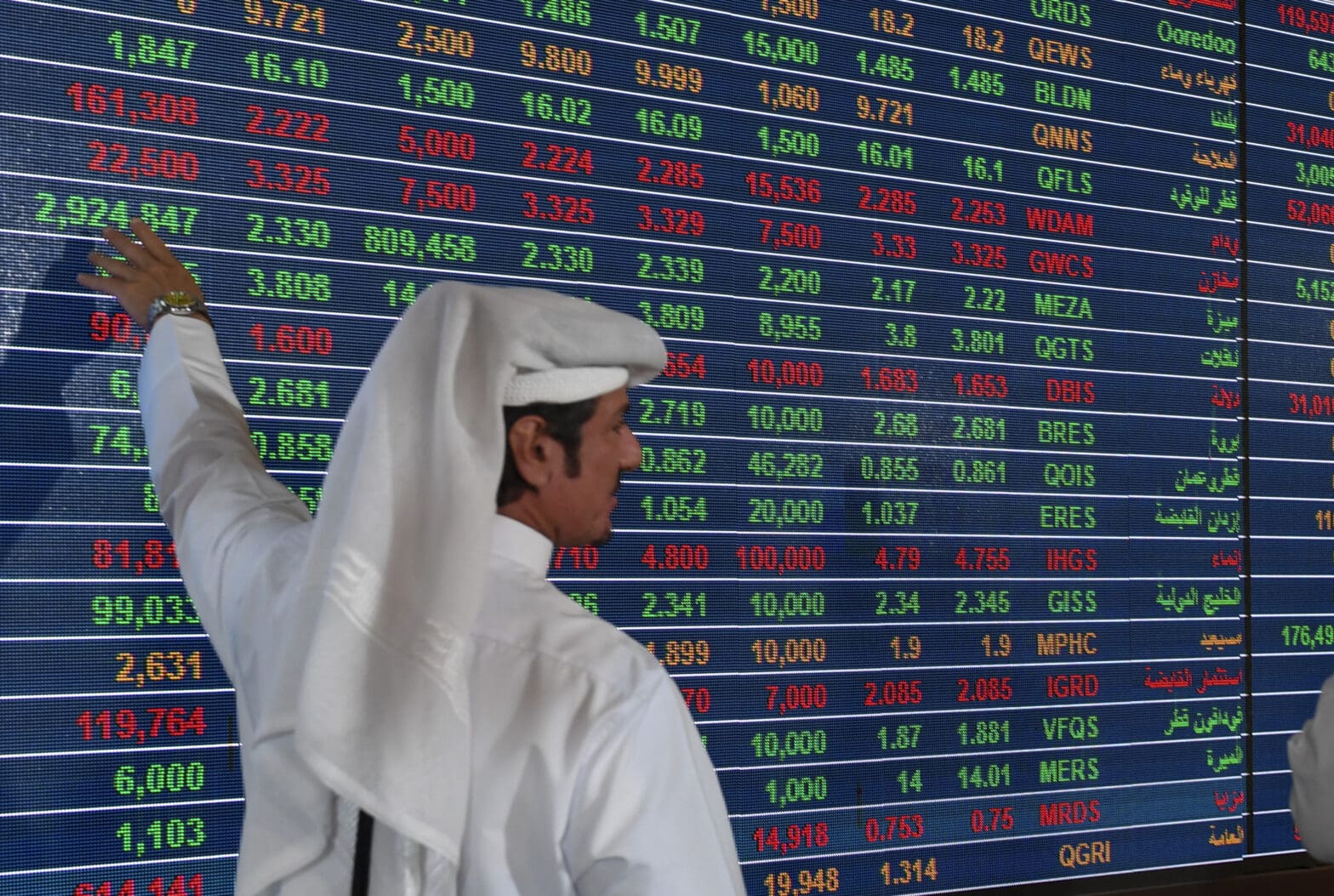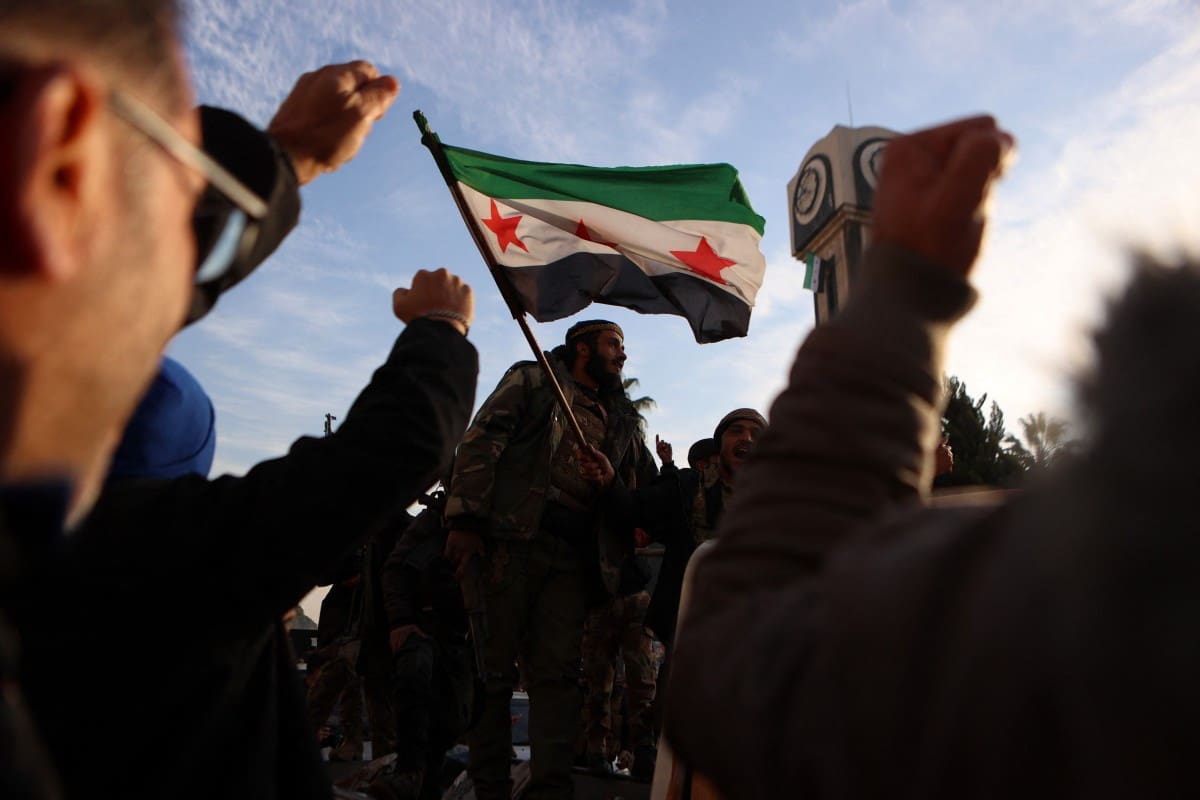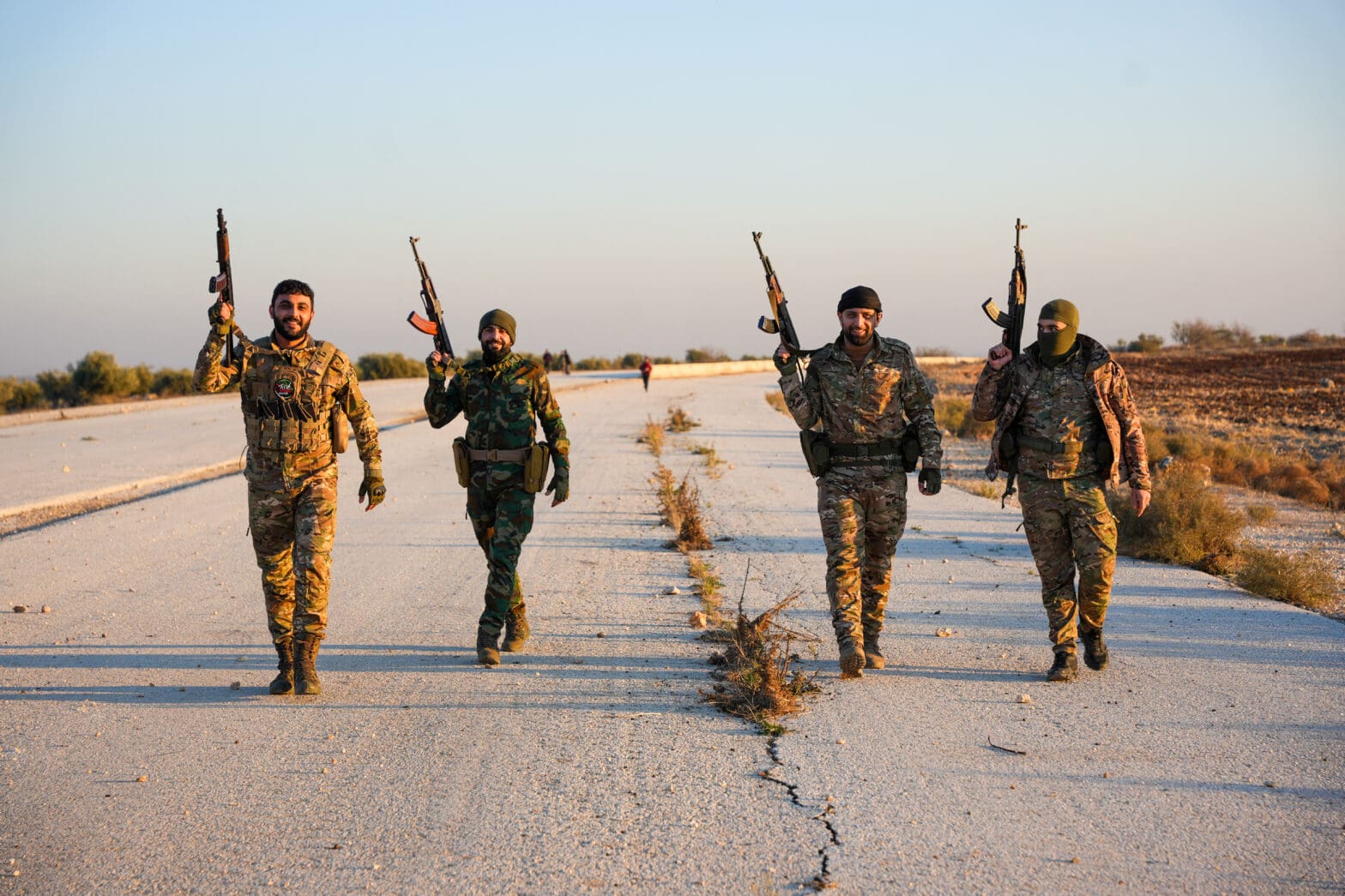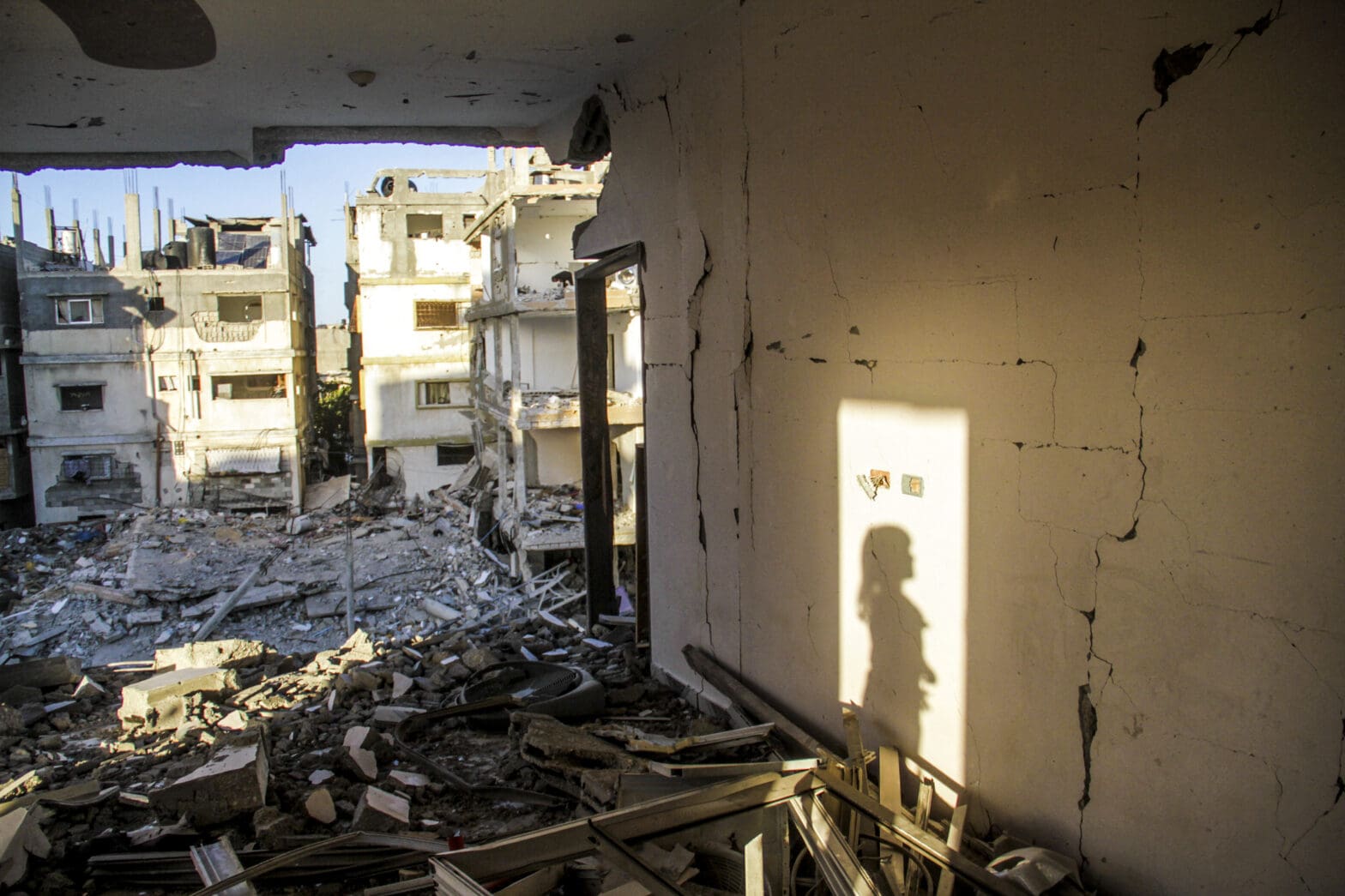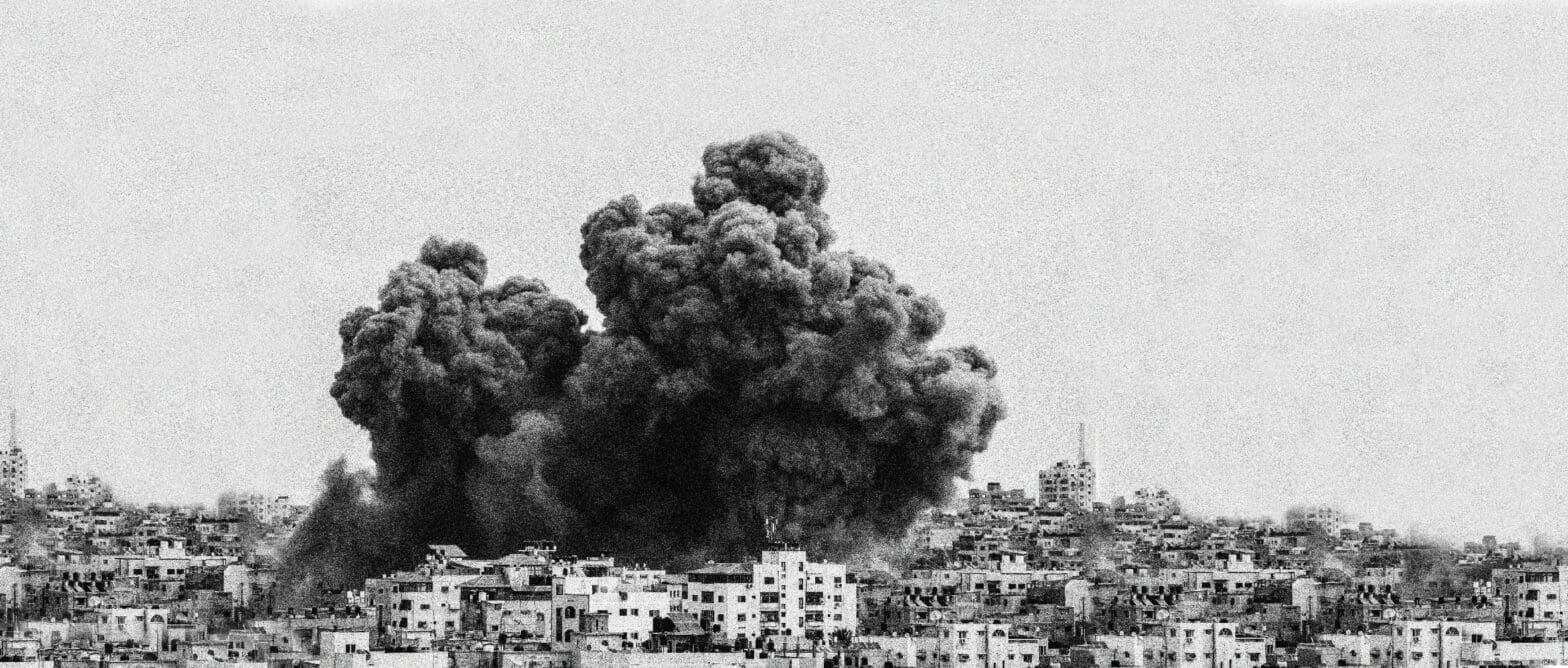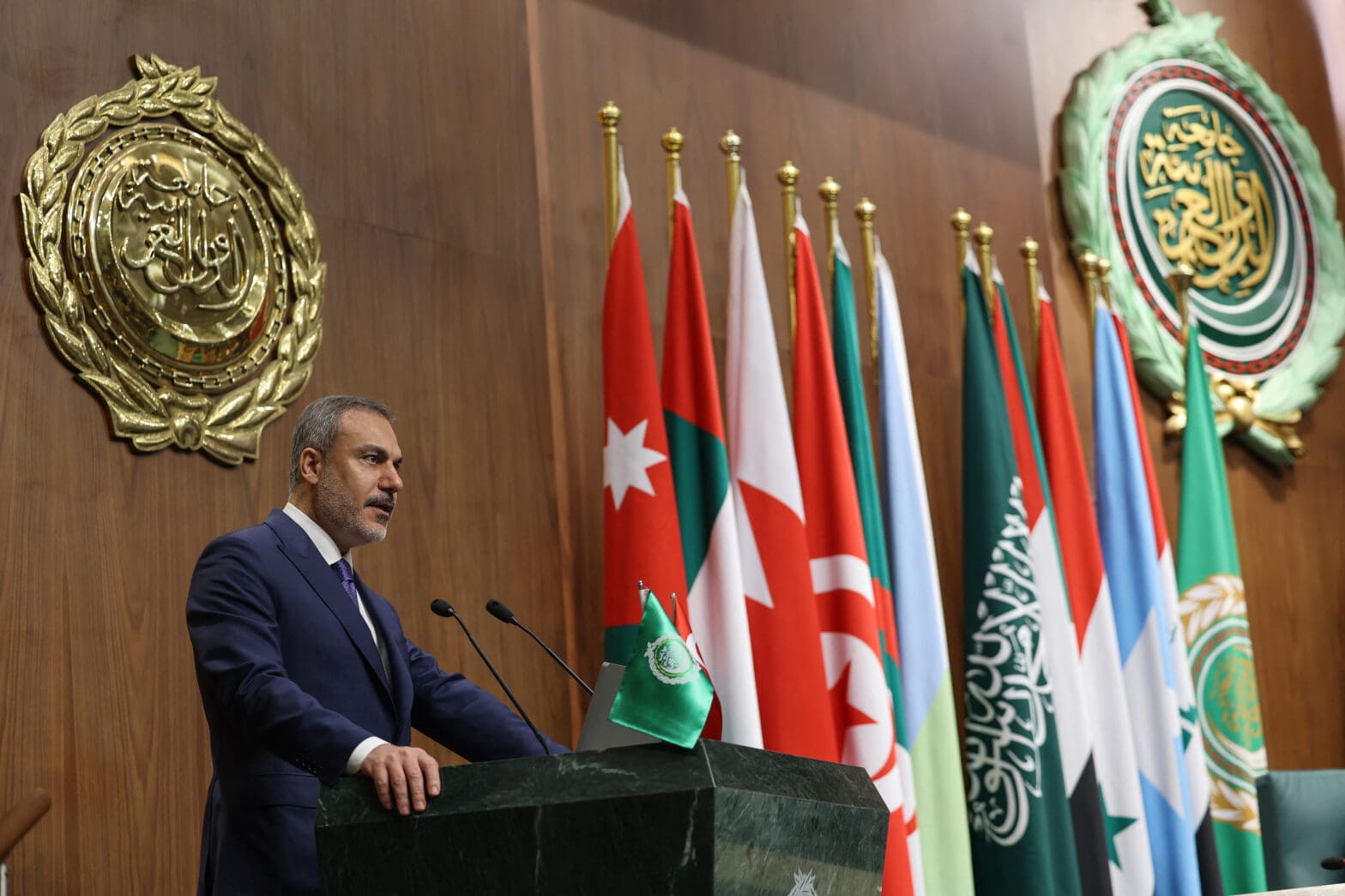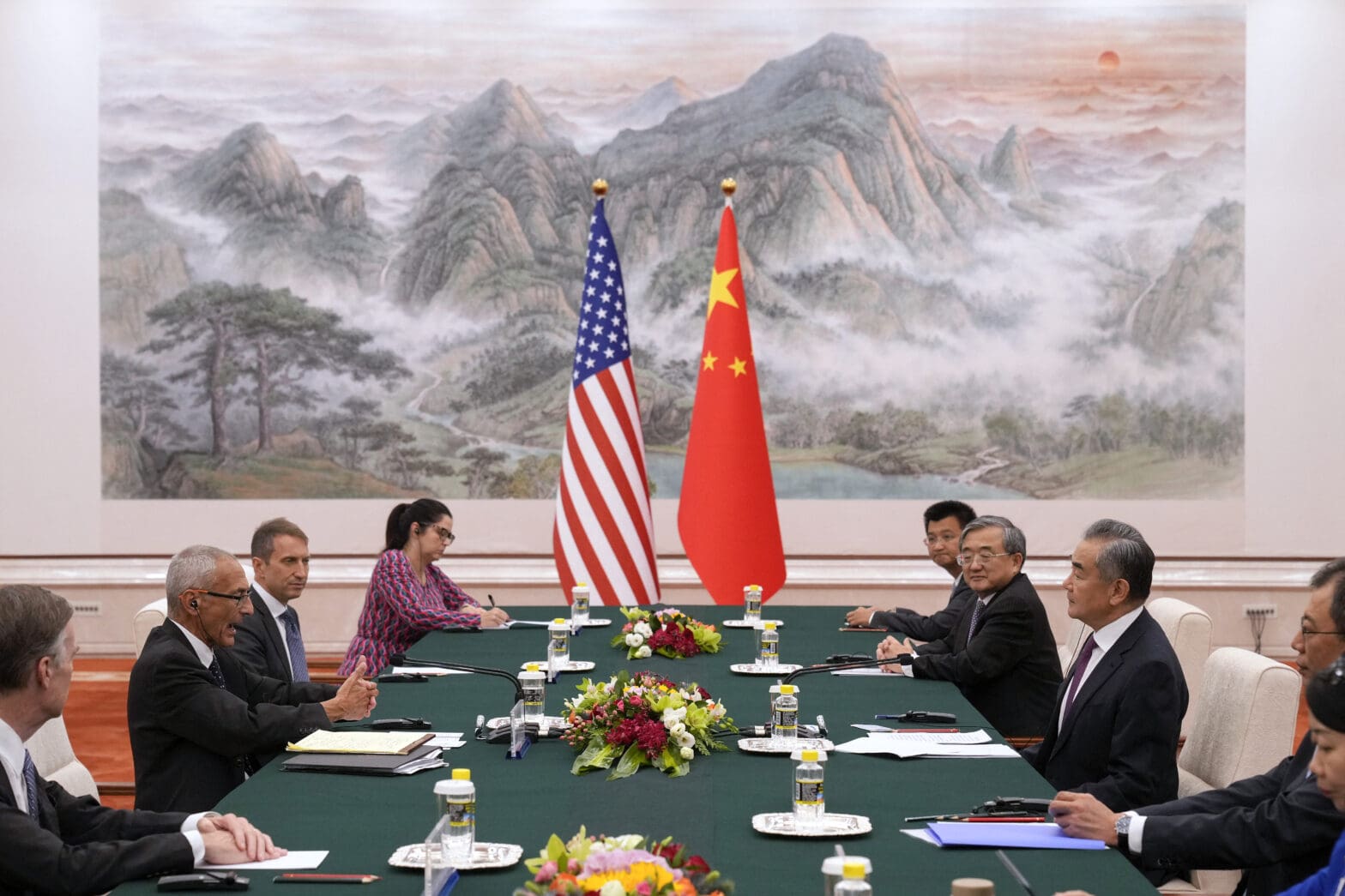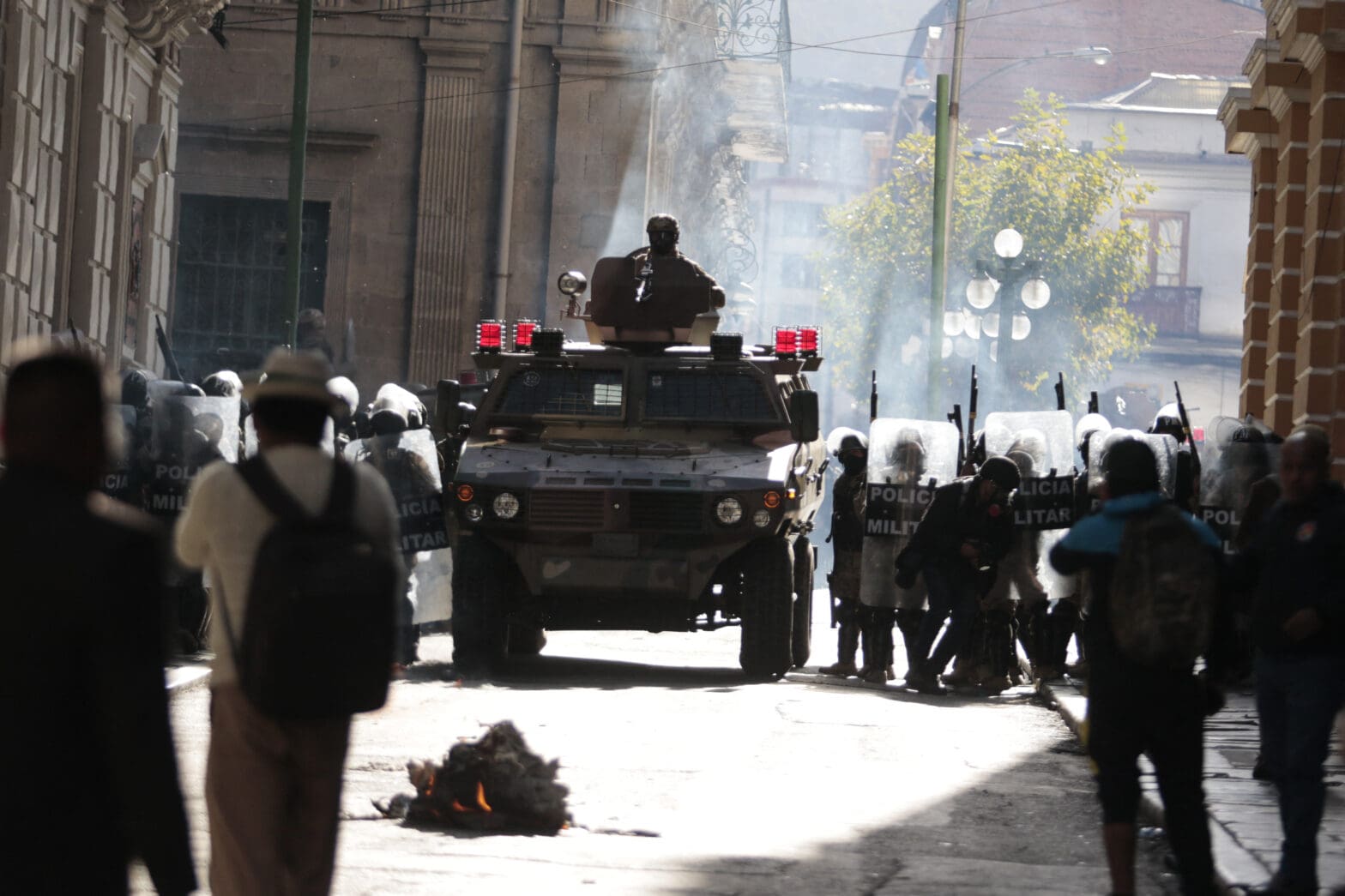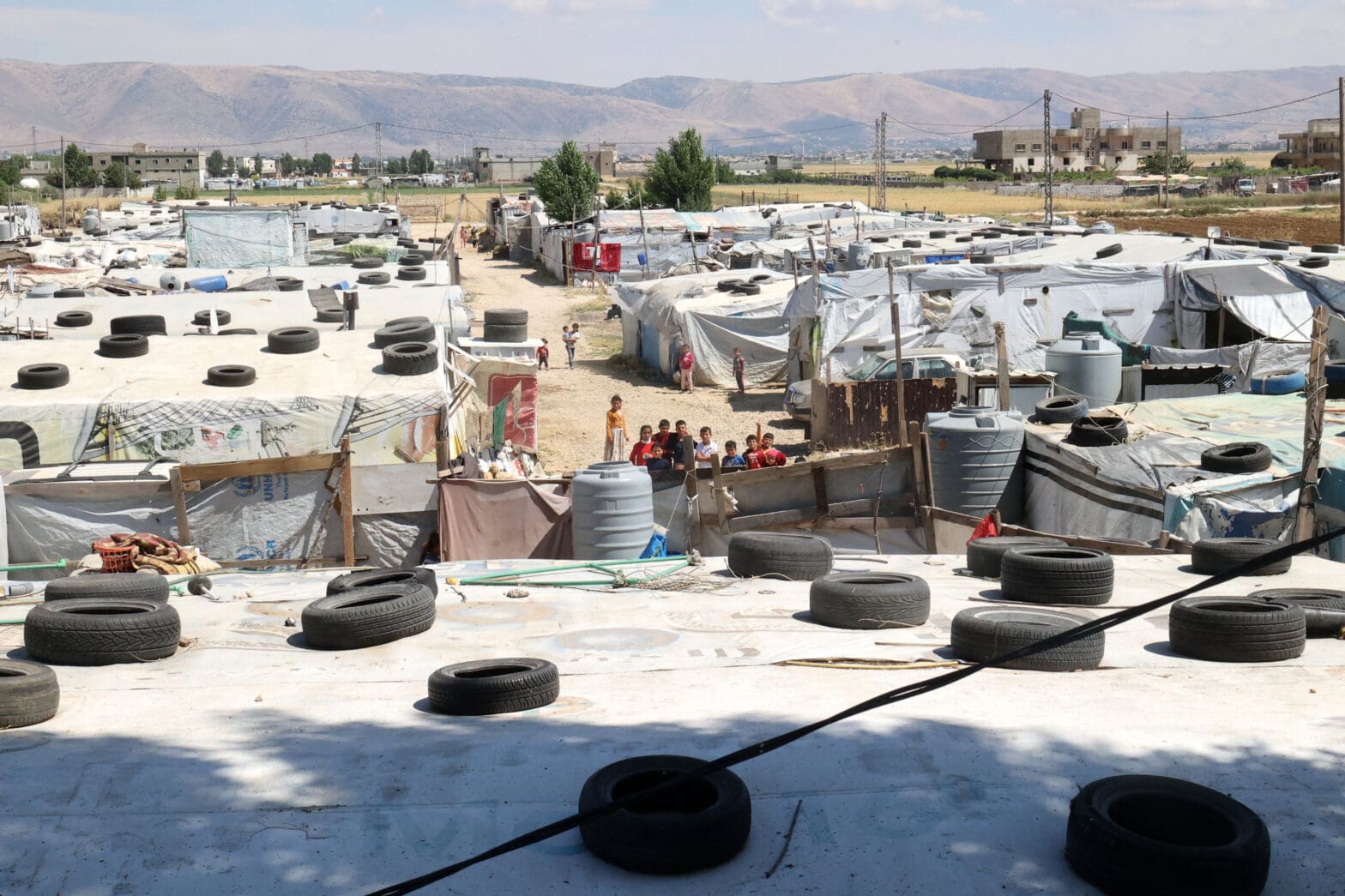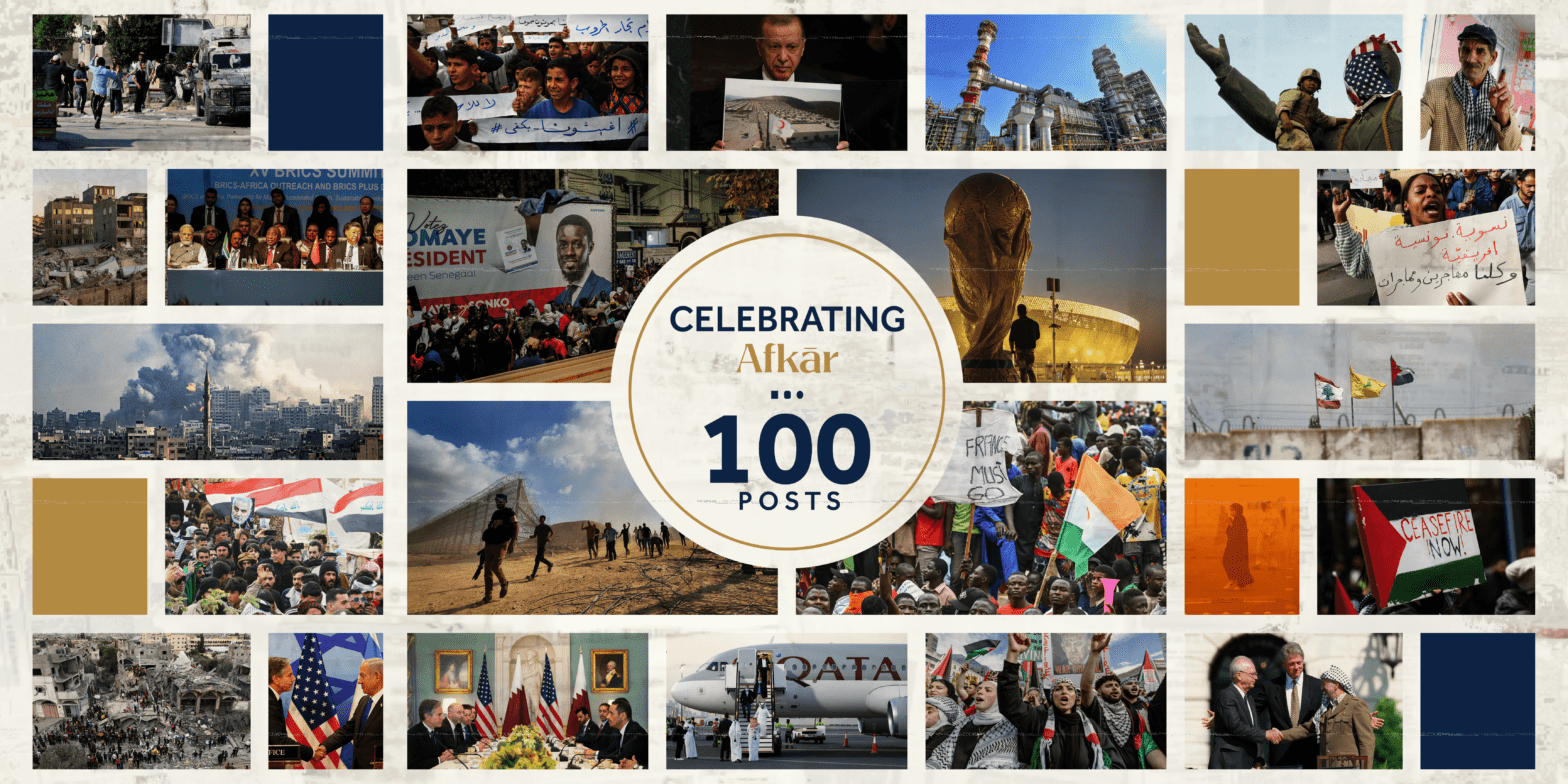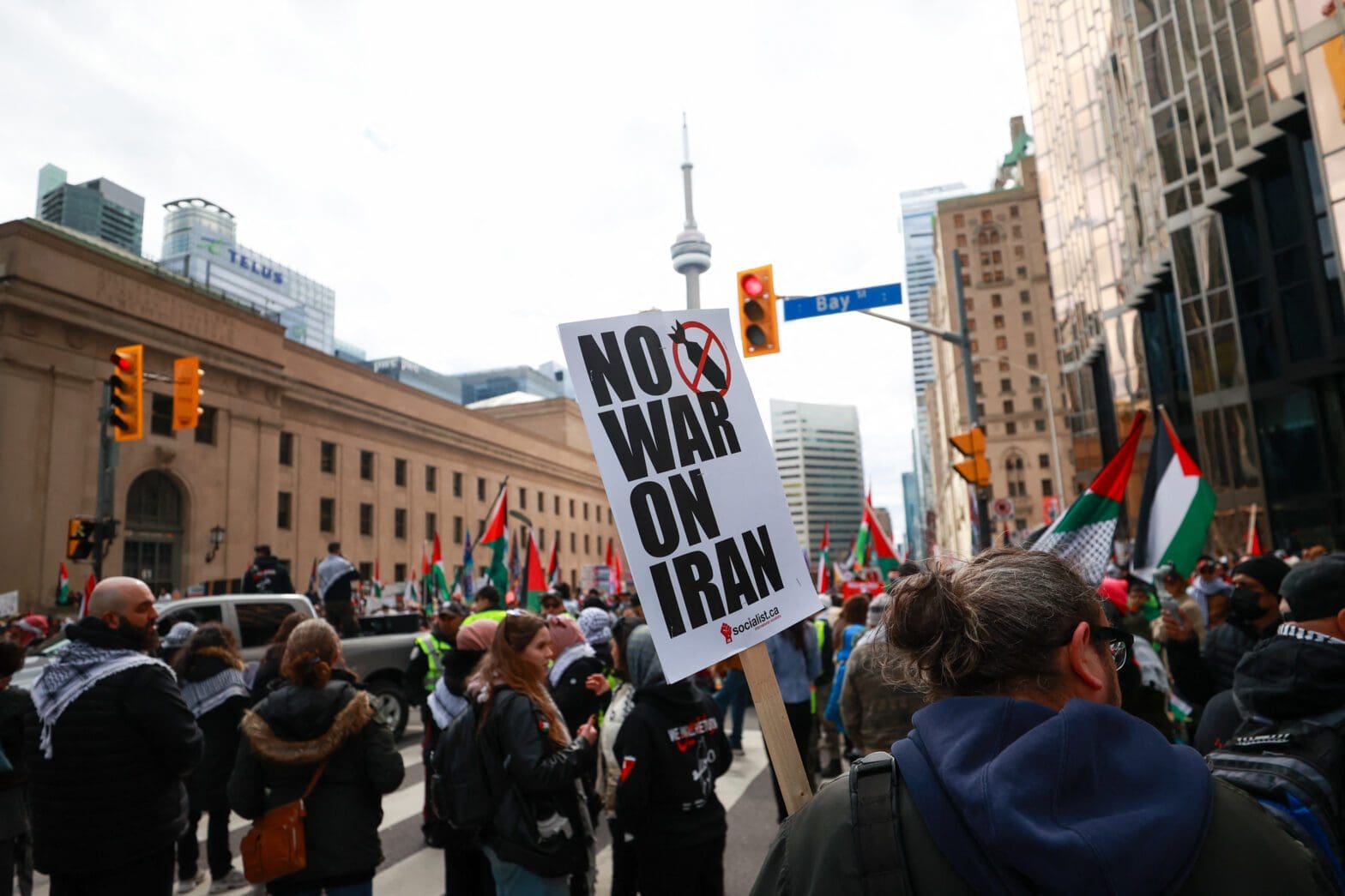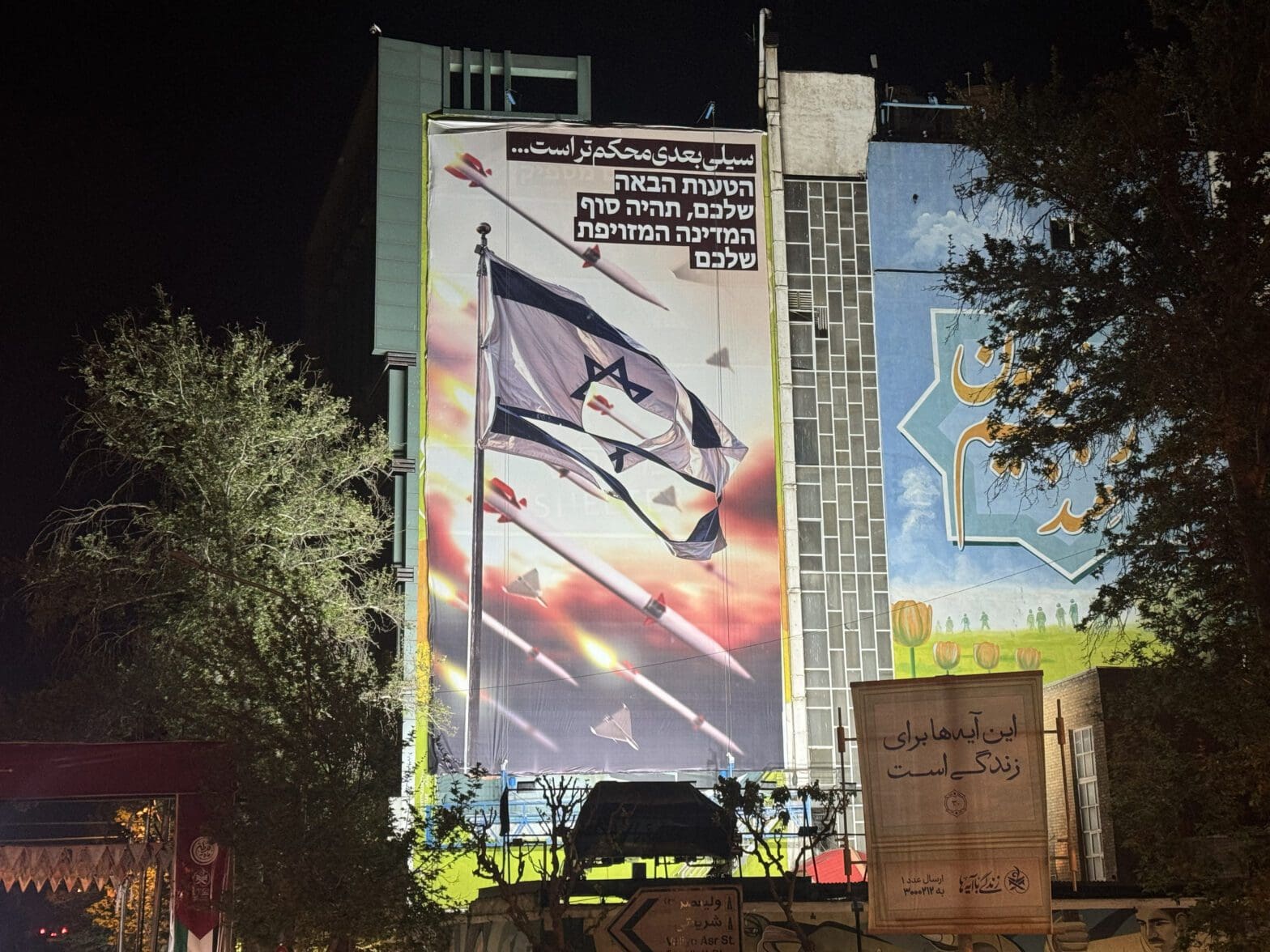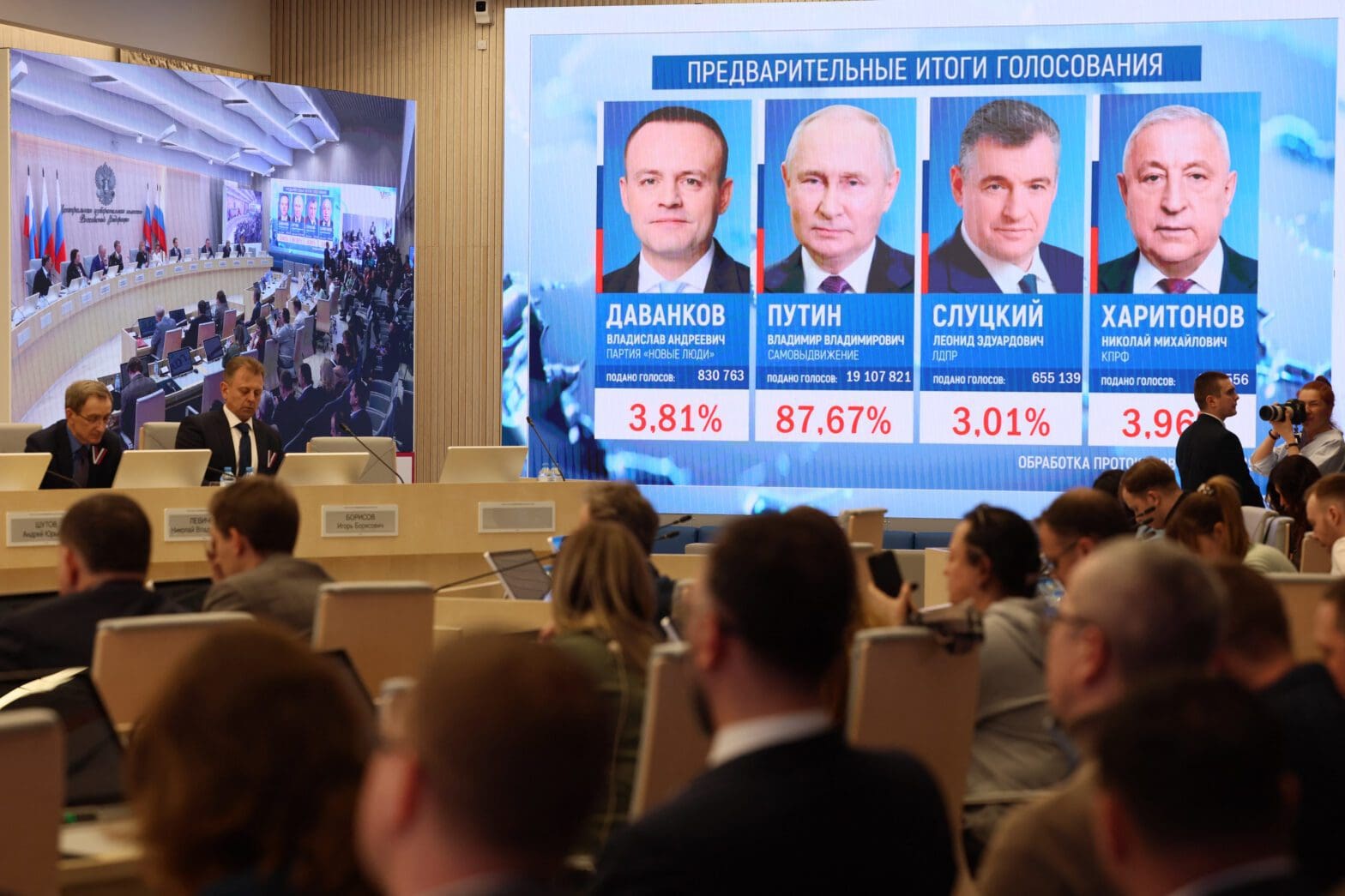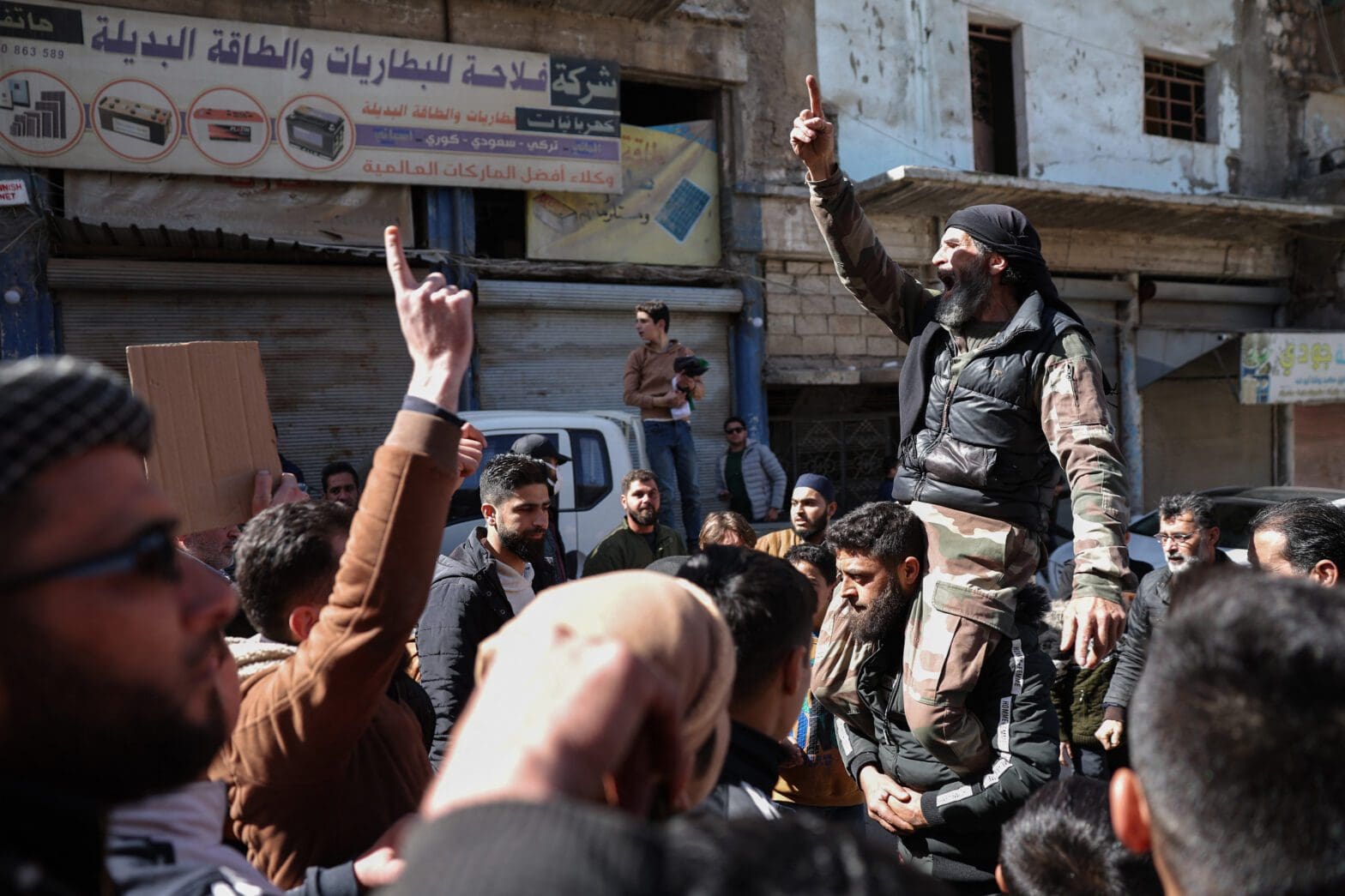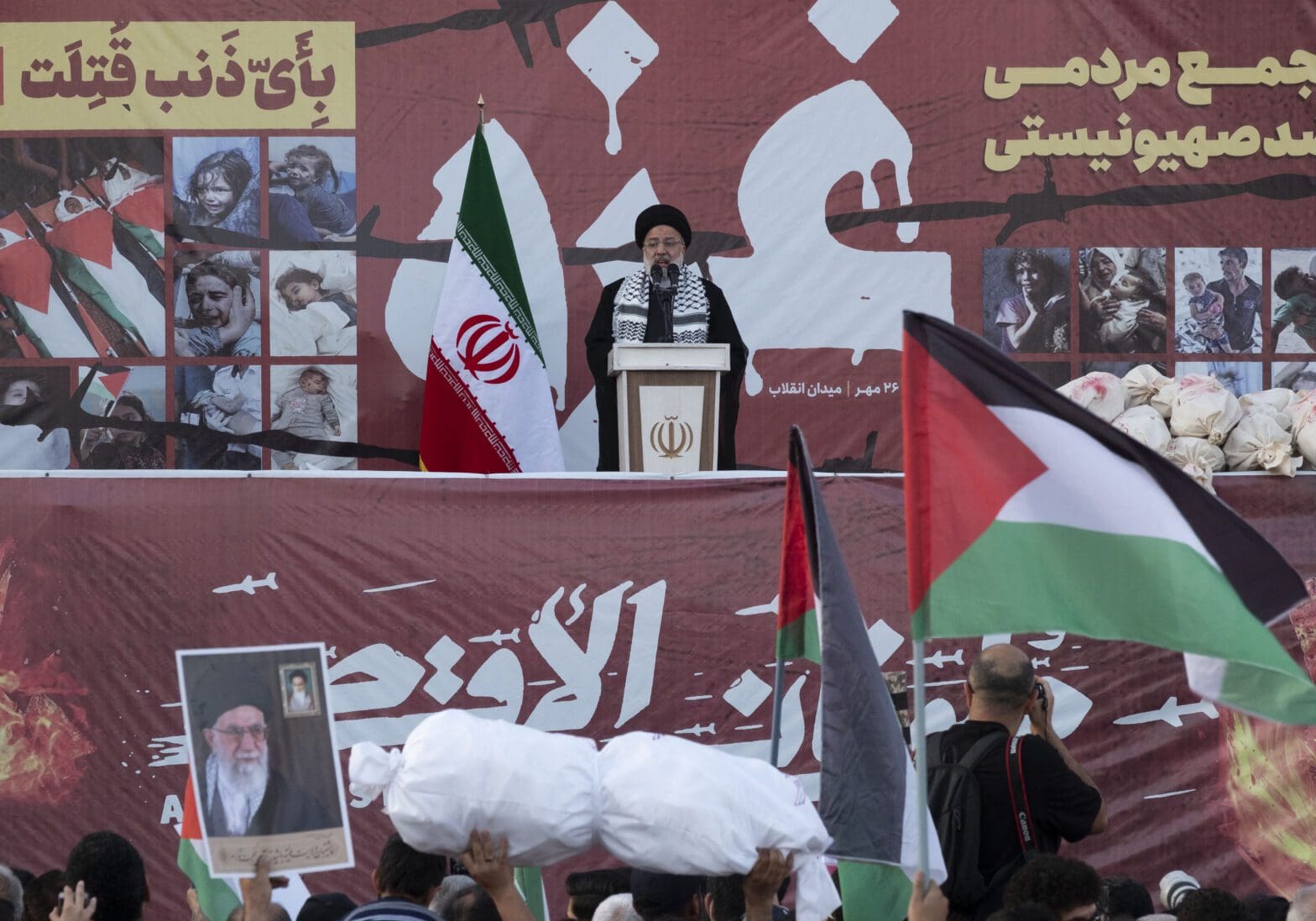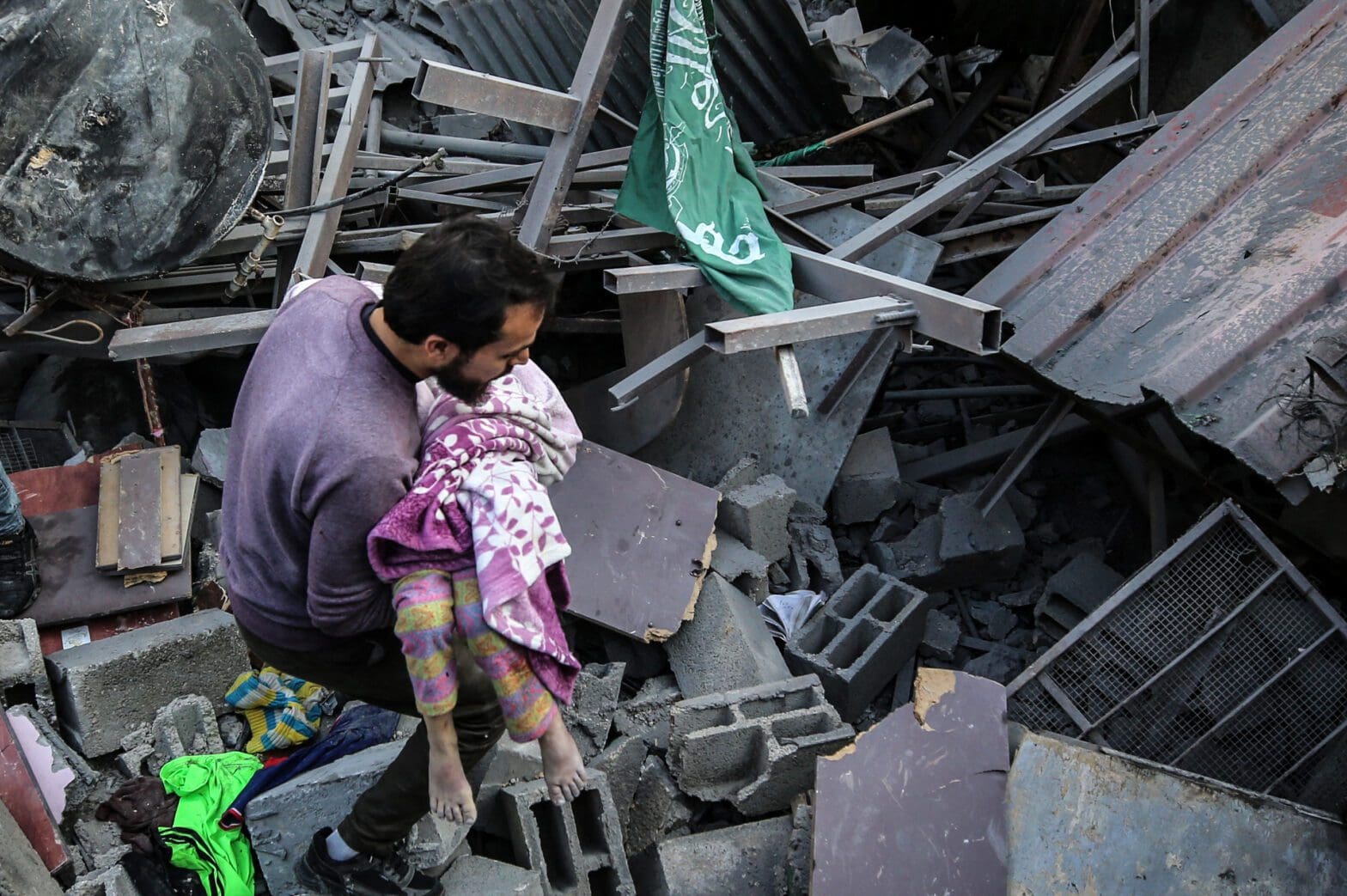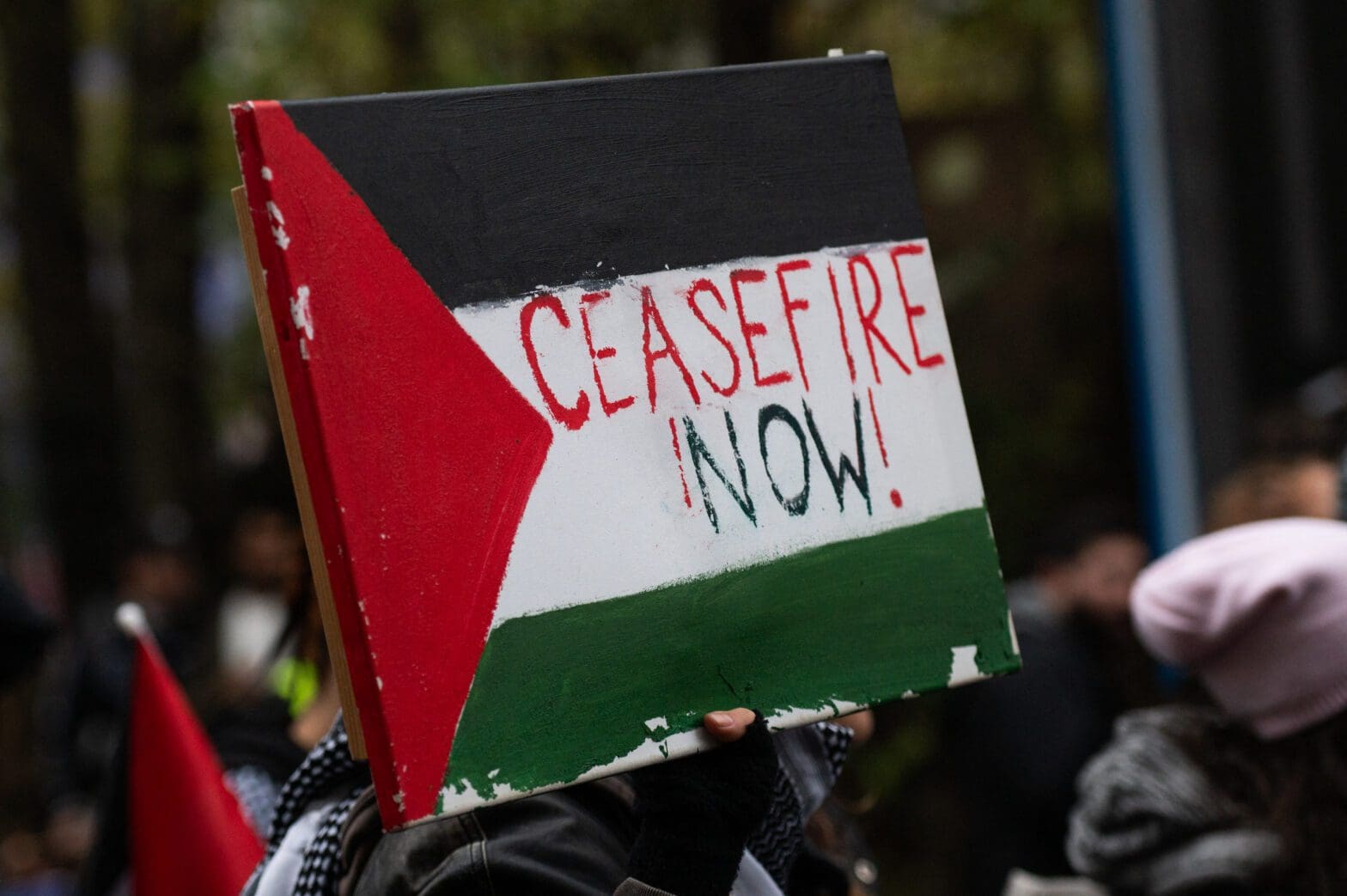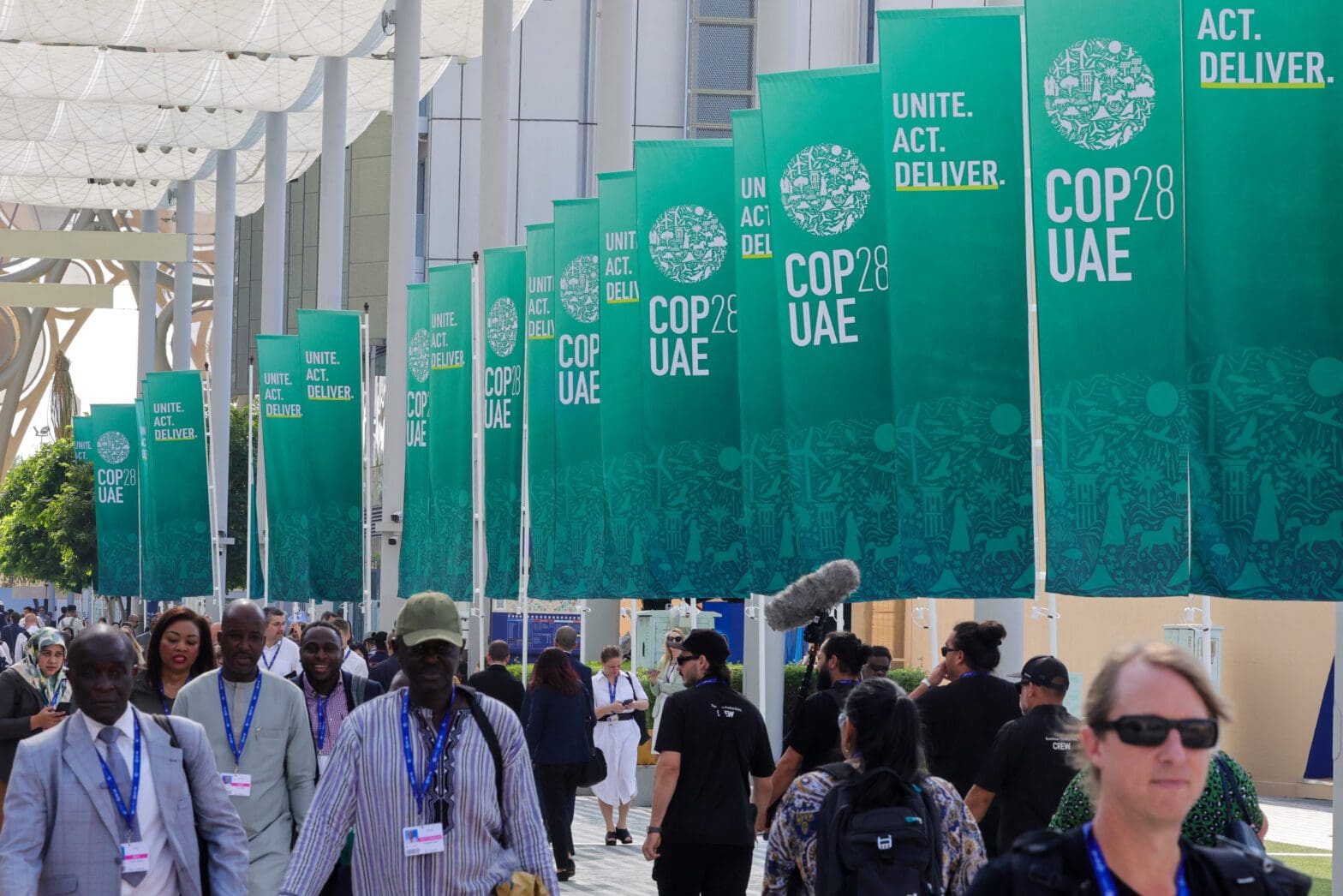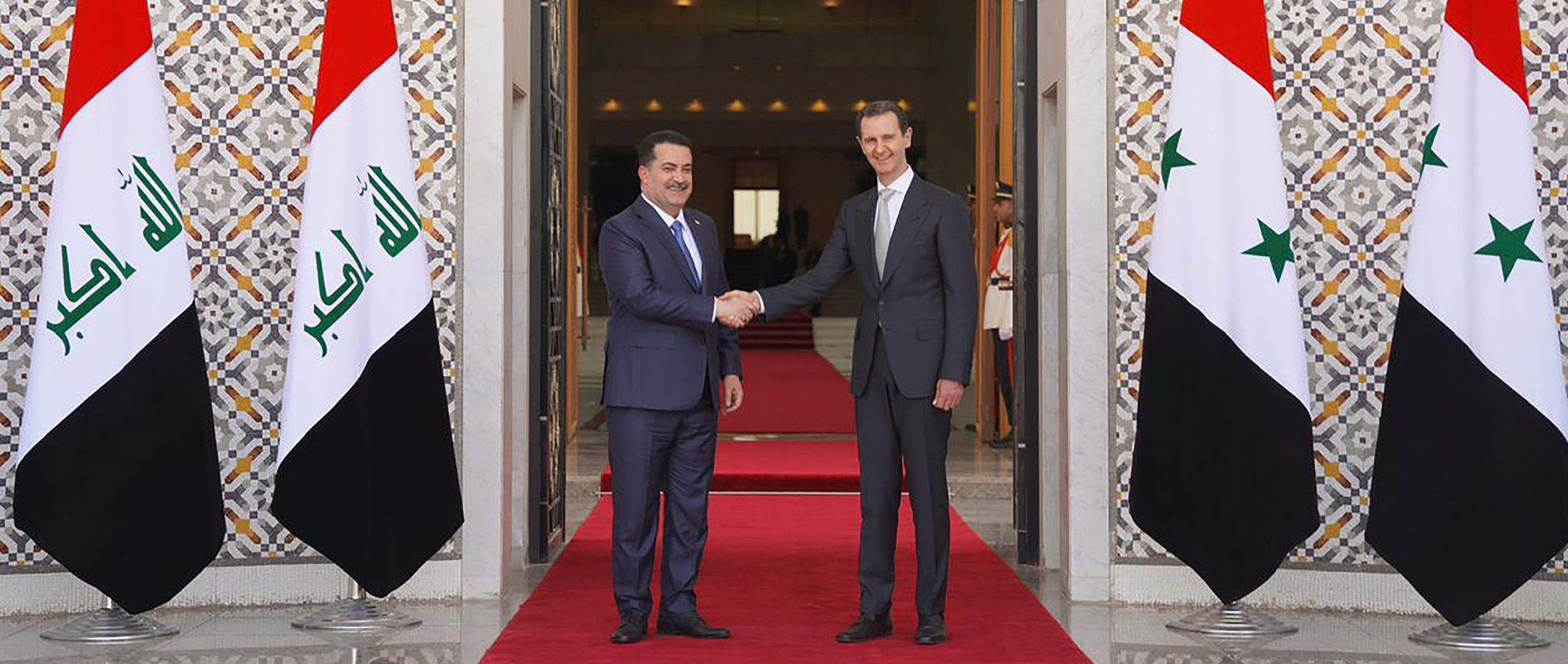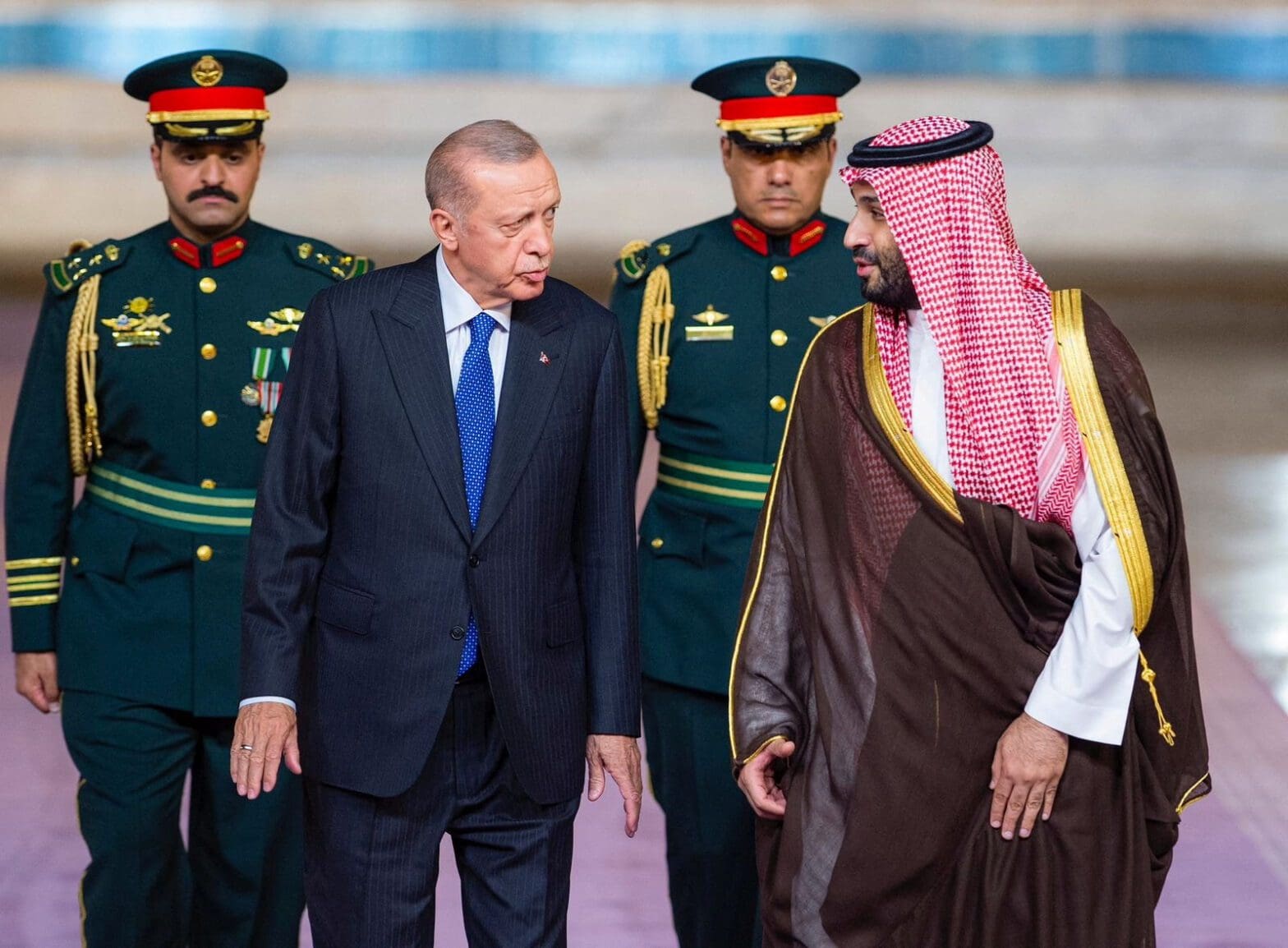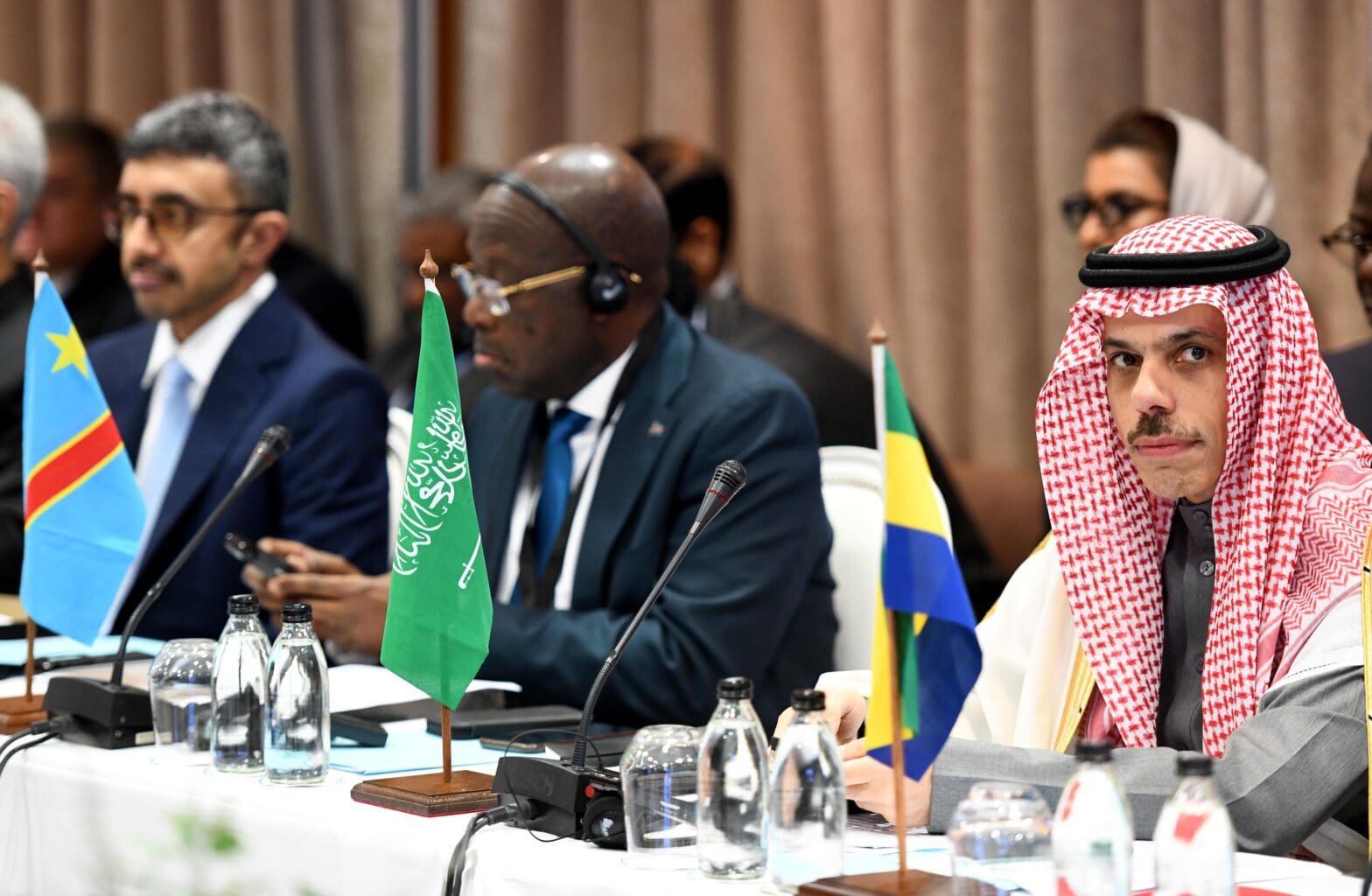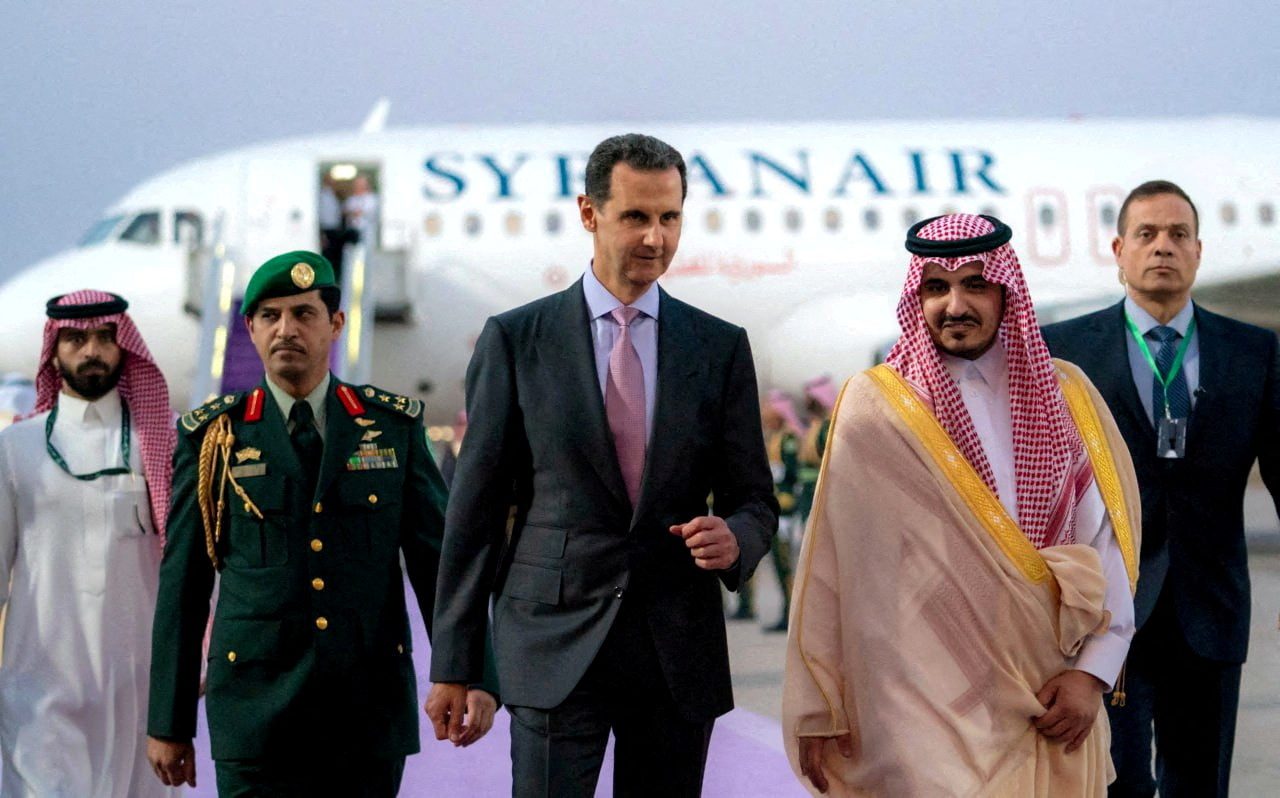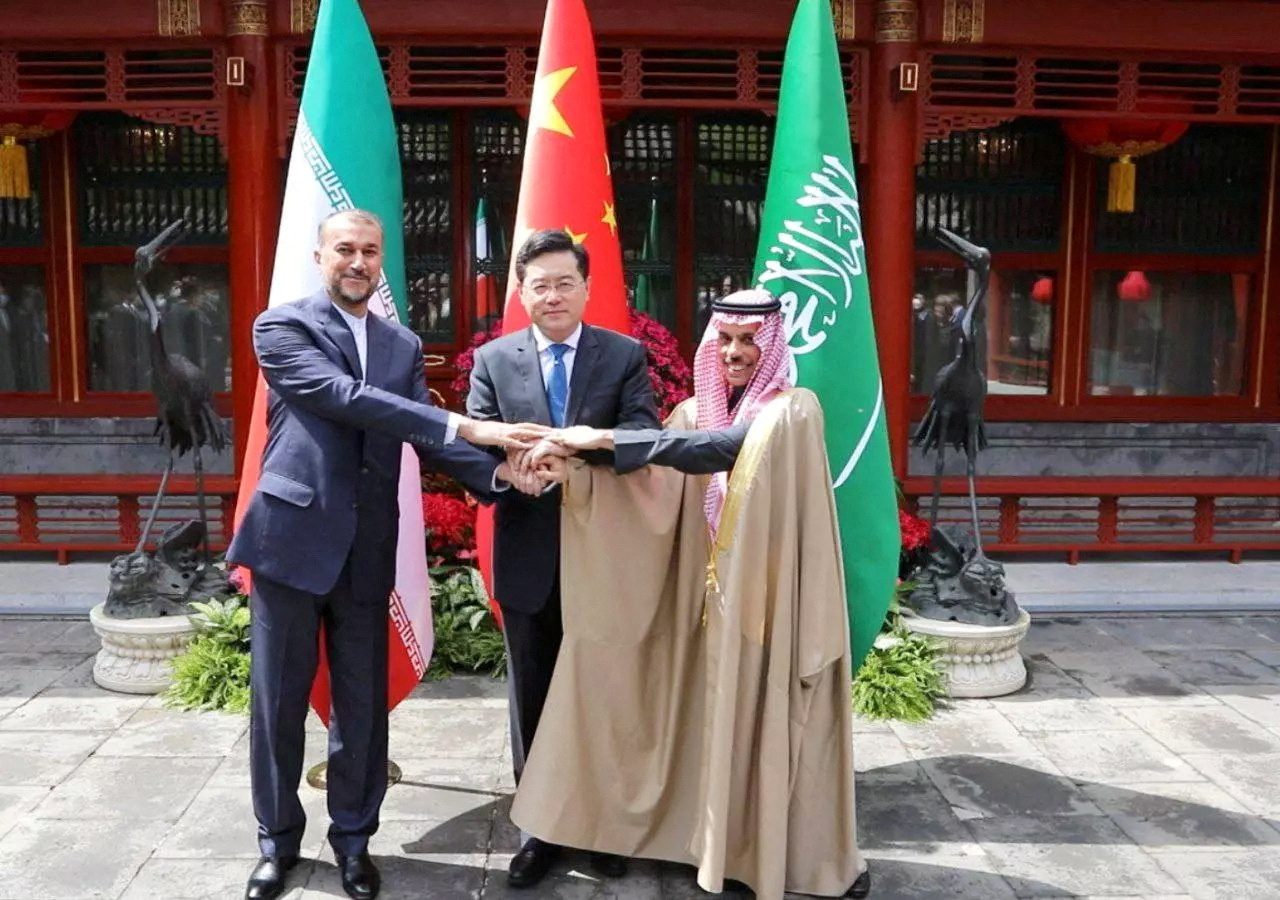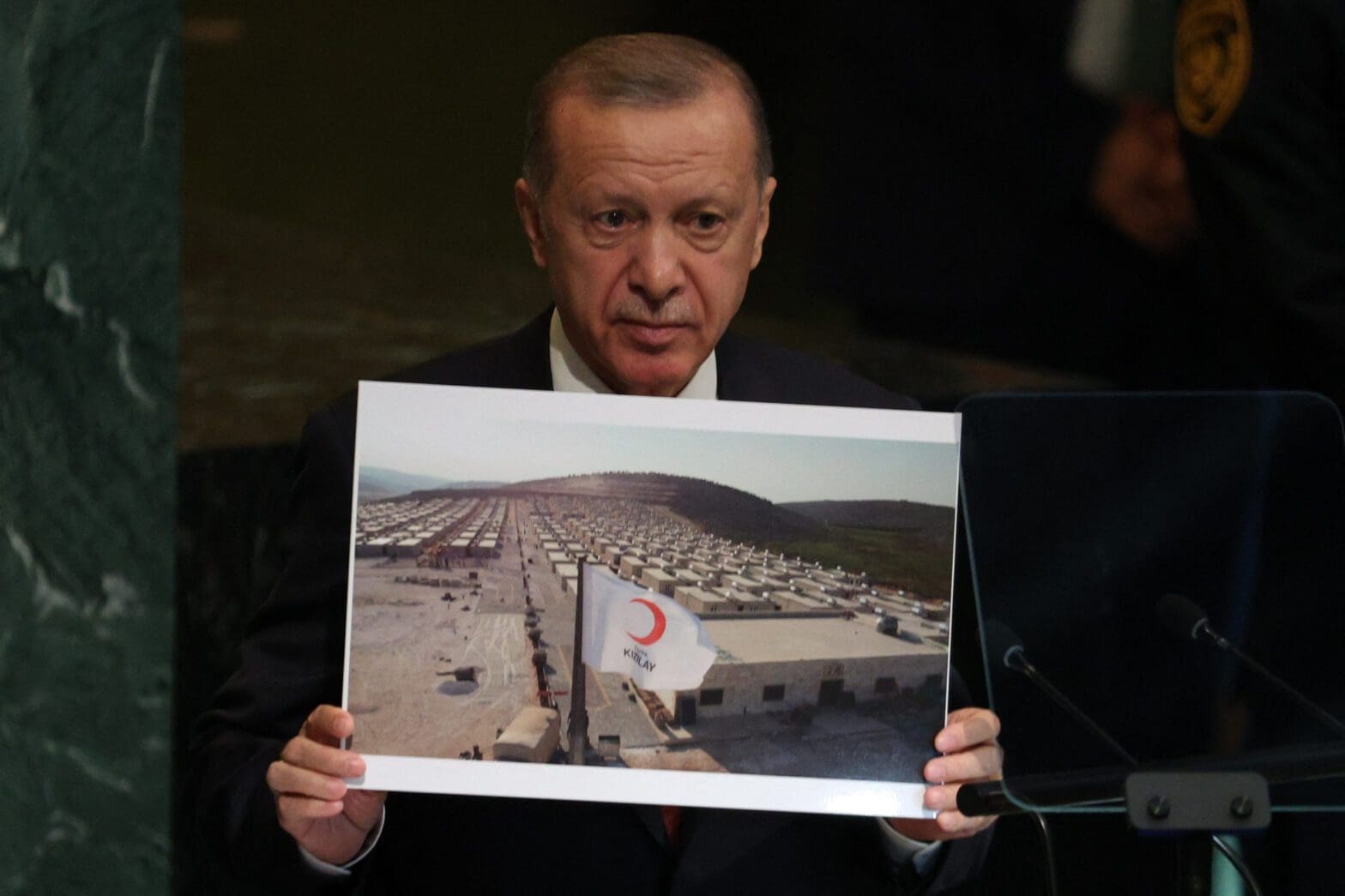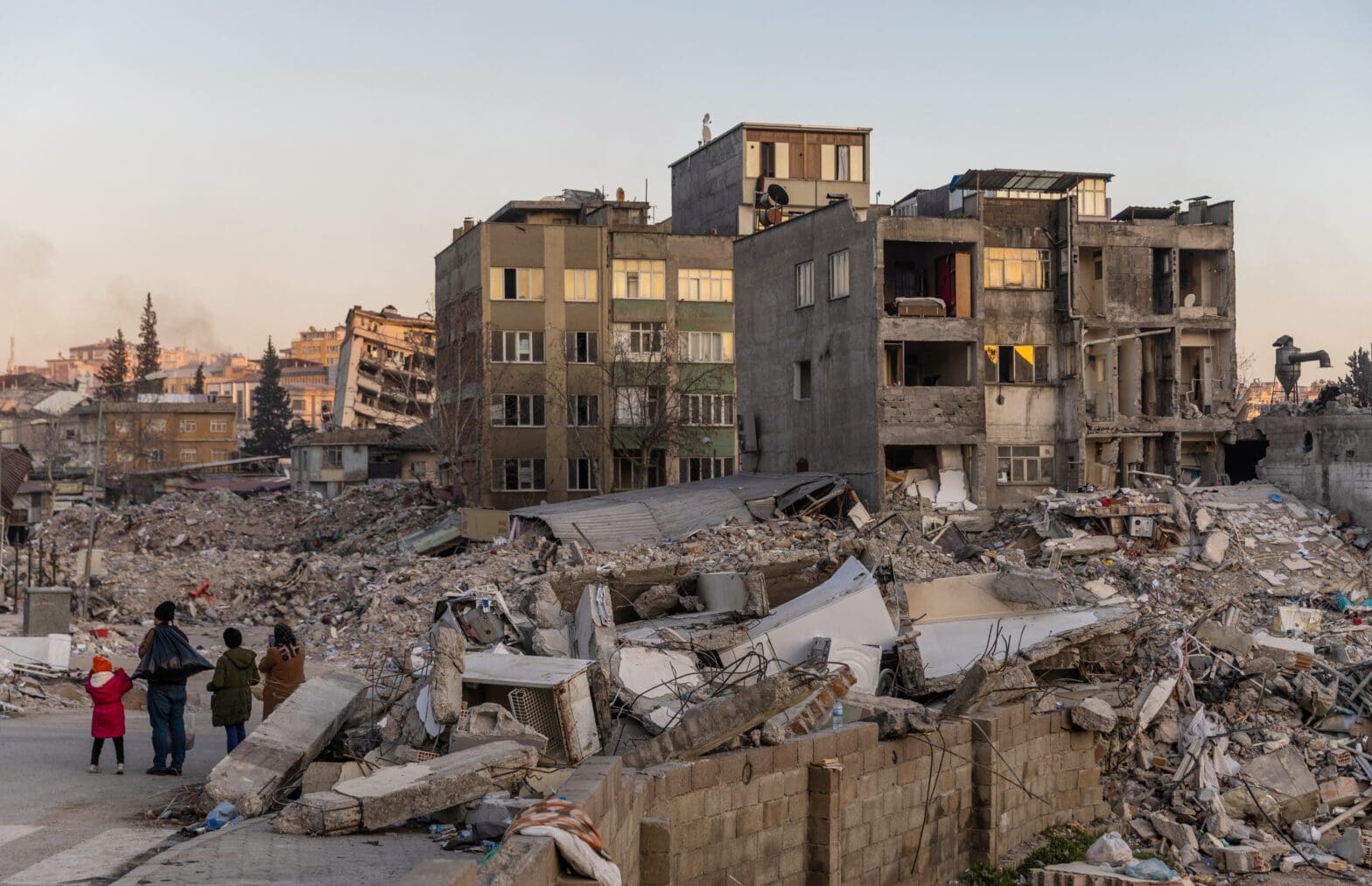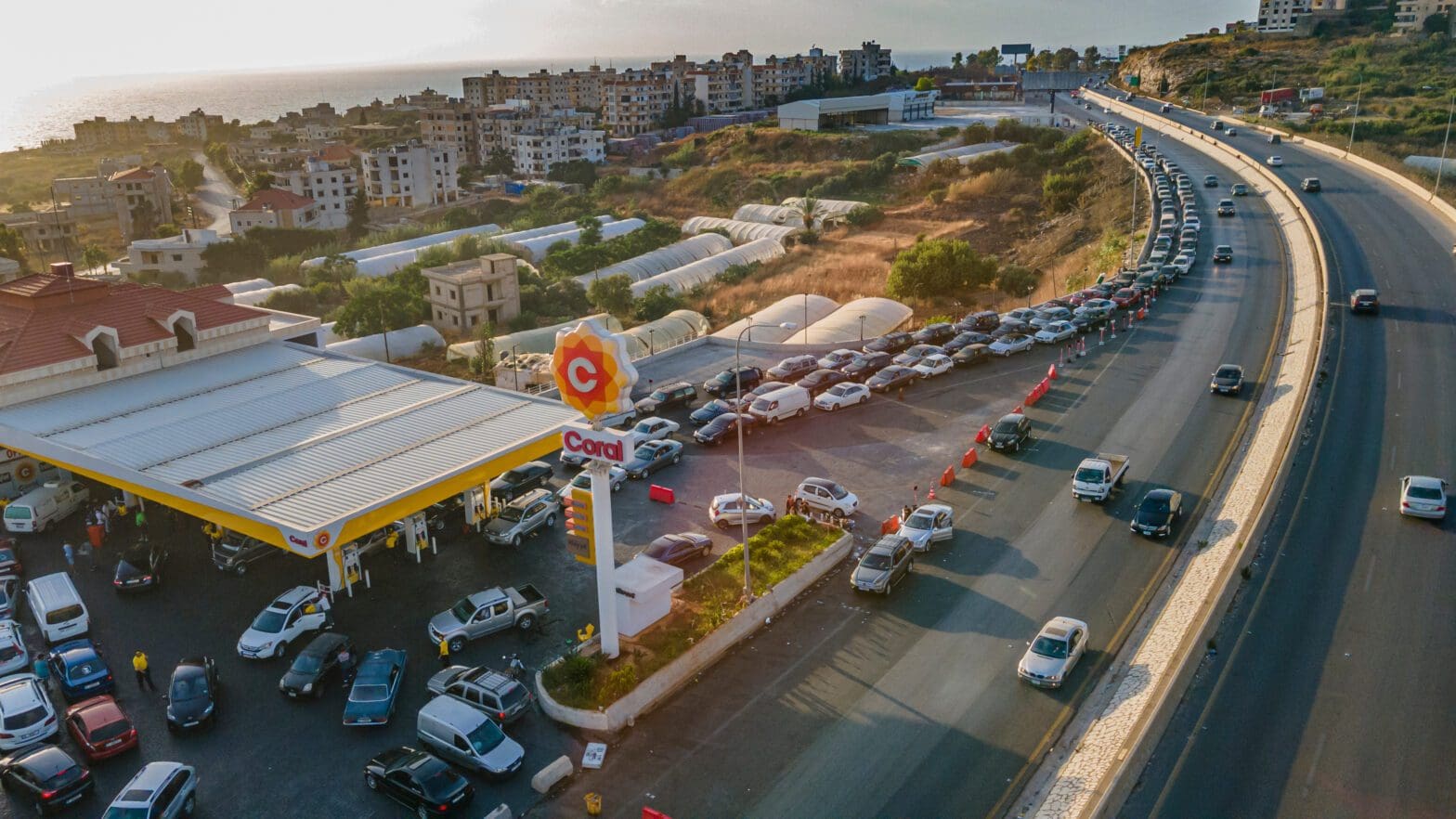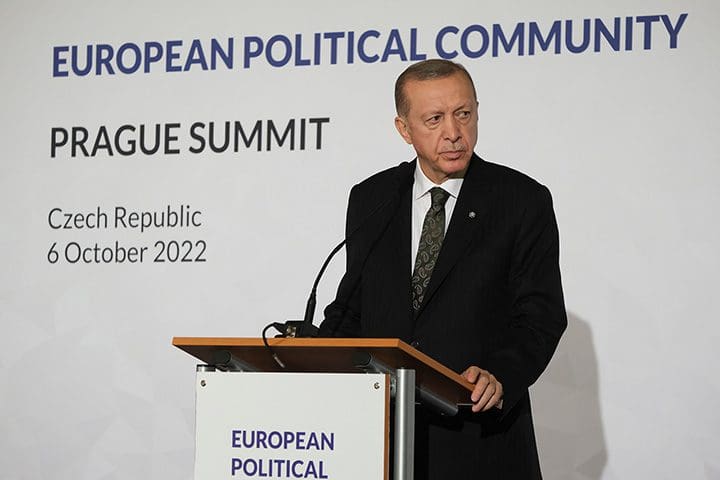With the December collapse of the Assad regime in Syria, 2024 came to a close in a dramatic and region-altering fashion. This, along with the numerous other major trend lines and points of conflict, likely makes 2025 a year that will be significant in reshaping the region’s future. Looking forward to what may be coming,… Continue reading MENA Outlook for 2025
Afkar Country: Syria
With the Axis of Resistance in Retreat, How Will the Iranian People Respond?
Iran’s regional policy is on the backfoot. Years of patronage and investment in the “Axis of Resistance,” a network of friendly actors that share Iran’s hostility toward U.S. hegemony in the Middle East, has unraveled in a short period of time and caught the Iranian regime off guard. While Iran’s leadership scrambles for a response,… Continue reading With the Axis of Resistance in Retreat, How Will the Iranian People Respond?
Whither the New Syria?
As history was made in Syria over the past month, seismic shocks have reverberated across the region. To start, the world witnessed the final convulsion of the World War I-era Sykes-Picot Agreement, which one historian called, with due irony, “a peace to end all peace.” Perhaps more ironic still, the signatories of that bygone treaty,… Continue reading Whither the New Syria?
Regional Economy Faces Plenty of Challenges—and Reasons for Hope—in 2025
Despite the turmoil rocking the Middle East and North Africa (MENA), there may be some glimmers of hope for the region’s economies in 2025. The World Bank and the International Monetary Fund (IMF) are both projecting an uptick in growth in most MENA economies. However, structural challenges, political instability, and geopolitical tensions will continue to… Continue reading Regional Economy Faces Plenty of Challenges—and Reasons for Hope—in 2025
Why Jihadist Groups Never Really Die
The lightening quick takeover of Syria by Hayat Tahrir al-Sham (HTS) led-fighters in an offensive that began on November 27 and ousted the 54-year old Assad regime by December 8, has been stunning. Indeed, the speed of developments has left many observers with more questions than answers, including on the character of the rebel forces,… Continue reading Why Jihadist Groups Never Really Die
Arab Public Opinion Under Pressure
Editor’s Note The relevance of public opinion in the Middle East and North Africa is a question often debated but little understood. Given the high prevalence of autocracy, surveys of popular sentiment are limited, while freedoms of speech and press are not the norm. Indeed, as thousands of political prisoners freed in recent days from… Continue reading Arab Public Opinion Under Pressure
Today Syrians Celebrate, Tomorrow the Real Work Begins
On December 8, the world awoke to stunning news. Overnight, rebel forces led by Hayat Tahrir al-Sham (HTS) had taken Damascus, facing little resistance as they entered the Syrian capital. Most of the state’s security agents and armed forces simply abandoned their positions and walked away. In an instant, the Assad regime’s fifty-four-year brutal rule… Continue reading Today Syrians Celebrate, Tomorrow the Real Work Begins
As Syria Heats Up, Türkiye Finds Itself in the Spotlight
The sudden and dramatic developments in northern Syria—beginning in the outskirts of Idlib and surrounding villages near Aleppo and culminating in Syria’s second largest city falling into rebel hands—have thrust Türkiye—widely seen as the closest external power to the rebel factions—into a spotlight it neither sought nor fully avoided. The speed and ease with which… Continue reading As Syria Heats Up, Türkiye Finds Itself in the Spotlight
Trump’s Return and Implications for the Middle East
On November 6, within hours of closing the polls, Donald Trump was declared the winner of the 2024 presidential election in the United States, defeating Vice President Kamala Harris by a wide margin. Trump’s remarkable triumph, which will return him to the White House after his defeat to Joe Biden in 2020, comes at a… Continue reading Trump’s Return and Implications for the Middle East
Adapting the Women, Peace and Security Agenda to the Arab World
When United Nations Security Council (UNSC) resolution 1325 on Women, Peace and Security (WPS) was adopted on October 31, 2000, it marked an unprecedented commitment by the international community to regard women as integral partners in peace processes. The WPS “agenda,” as it came to be known, encompasses ten UNSC resolutions that recognize the devastating… Continue reading Adapting the Women, Peace and Security Agenda to the Arab World
A Region Under Fire
Editor’s Note: There Are No Winners Here Omar H. Rahman, Fellow and Editor of Afkār, Middle East Council on Global Affairs The Israeli-Palestinian conflict did not begin on October 7, 2023. Decades of military occupation, colonial land theft and systemic deprivation had already pushed Palestinians into a state of constant struggle, laying the groundwork… Continue reading A Region Under Fire
Interview: Türkiye Engages the Arab League
At the most recent meeting of the League of Arab States (LAS) in Cairo, Turkish Foreign Minister Hakan Fidan was in attendance, marking the first time Türkiye has been represented at the summit in 13 years. In his address, Fidan offered pointed remarks on the war on Gaza and the need for unity among Arab… Continue reading Interview: Türkiye Engages the Arab League
Can China and the U.S. Cooperate in the Middle East?
Cooperation between China and the United States in the Middle East has become a common topic of discussion between academics and experts these days. The two great powers have vested interests in the region that are jeopardized by its chronic instability and the growing threat of regional war. Cooperation between the two should be a… Continue reading Can China and the U.S. Cooperate in the Middle East?
The Coup Contagion Continues
The first attempted military coup of 2024 took place in Bolivia on June 26, when soldiers stormed the presidential palace and occupied the main square in La Paz. While Bolivia is no stranger to putsches, with the highest number of coups worldwide since 1950, it is now the latest in a long list of countries… Continue reading The Coup Contagion Continues
EU Aid for Syrian Refugees: Addressing Ongoing Needs in Türkiye and Lebanon
In late May of this year, the European Union and other international donors pledged €7.5 billion ($8 billion) in grants and loans to support millions of Syrians displaced within and beyond the country’s borders by a devastating 13-year civil war. The seemingly vast sum pledged at the Brussels conference on “Supporting the future of Syria… Continue reading EU Aid for Syrian Refugees: Addressing Ongoing Needs in Türkiye and Lebanon
The Middle East in the Wake of October 7: Interview with Tarik M. Yousef Marking 100 Afkār Posts
We at Afkār are delighted to announce that we have reached a new milestone, our 100th post! To mark the occasion, we have recorded and transcribed a special interview with the Director of the Middle East Council on Global Affairs, Tarik M. Yousef. The in-depth interview was conducted by our editor, Omar H. Rahman, and… Continue reading The Middle East in the Wake of October 7: Interview with Tarik M. Yousef Marking 100 Afkār Posts
What Next for the War Between Iran and Israel?
The Islamic Republic of Iran’s direct attack against Israel was the first of its kind since the country’s clerical rulers seized power in 1979. In a major show of force, Iran launched more than 300 drones and missiles from its own territory—an unprecedented break with its past approach. Israel and its allies, including the United… Continue reading What Next for the War Between Iran and Israel?
Iran-Israel Tensions Emerge from the Shadows – Council Views
On April 13, Iran attacked Israel directly for the first time in its history, retaliating for Israel’s killing of three top Iranian commanders in Damascus on April 1. Israel has since responded with a limited strike, and the United States and its allies imposed expanded sanctions on Iran. Middle East Council scholars examine the implications… Continue reading Iran-Israel Tensions Emerge from the Shadows – Council Views
Interview: Russia in the Middle East
1. Over two years into Russia’s full-scale invasion of Ukraine, Russians have just gone to the polls and Ukraine appears set to postpone an election slated for the end of March. In Russia, Putin reportedly spent more than $1 billion on a public relations campaign in the lead-up to the election. What is the significance… Continue reading Interview: Russia in the Middle East
Winning the Peace in the Middle East’s Fragile State
The military escalation since the start of the war in Gaza on October 7 highlights the vulnerability of the Middle East and North Africa (MENA) to a relapse of conflict, potentially in a conflagration that could engulf the region at large. Over years of devastating intra-state conflicts and proxy wars in Iraq, Syria, Libya, and… Continue reading Winning the Peace in the Middle East’s Fragile State
Iran’s Strategy in the War on Gaza
The recent drone strike on American soldiers stationed near the Jordan-Syria border, and Washington’s retaliatory strikes in Iraq and Syria, underscore the dangerous potential for a major escalation between the United States and Iran that could engulf the wider region. Washington and Tehran have engaged in a tit-for-tat conflict for several months now, which has… Continue reading Iran’s Strategy in the War on Gaza
Gaza and Its Impact Three Months On – Council Views
Israel’s military campaign in Gaza is entering its fourth month with no end in sight and with the most devastating consequences imaginable for the 2.2 million Palestinian civilians living there, for which Israel is now facing charges of genocide at the International Court of Justice. The effects of this are also being felt well beyond… Continue reading Gaza and Its Impact Three Months On – Council Views
A Ceasefire in Gaza is the only Bridge toward Durable Peace in the Middle East
The shocking and unprecedented attack by Hamas on southern Israel caught the technologically advanced Israeli army and security forces by surprise. Hamas’s initial assault killed more than 1,400 Israelis, and thousands of Palestinians have been killed as Israel has retaliated in Gaza. Israel has said hundreds of hostages are being held in Gaza. In addition… Continue reading A Ceasefire in Gaza is the only Bridge toward Durable Peace in the Middle East
“Global Boiling” is a Grim Reality: MENA Governments Must do More to Prepare
For residents of sweltering parts of the Middle East and North Africa, it will come as little surprise that 2023 could be the hottest year on Earth since records began. July has already set a grim landmark as the hottest month on record, prompting United Nations Secretary-General António Guterres to remark that “the era of… Continue reading “Global Boiling” is a Grim Reality: MENA Governments Must do More to Prepare
Syria Is Back, But Normalization Has Its Limits
The visit of Iraq’s prime minister to Damascus in July was the latest sign that Syria is mending ties with its neighbourhood, more than a decade after the Arab League suspended its membership over its brutal repression of anti-government protests. As the country’s catastrophic civil war settles, the regime of Bashar al-Assad can chalk up… Continue reading Syria Is Back, But Normalization Has Its Limits
Erdogan’s Gulf Visit Heralds New Regional Approach
Weeks after winning a new five-year term as president of Türkiye, Recep Tayyip Erdogan visited Saudi Arabia, the United Arab Emirates and Qatar with a delegation that included nearly 200 business and government officials. The veteran leader’s first visit to the region since his electoral victory in May is the culmination of a rapid reconciliation… Continue reading Erdogan’s Gulf Visit Heralds New Regional Approach
MENA States’ Assertive Approach in the Era of Emerging Multipolarity
As American dominance of the Middle East and North Africa wanes and other world powers step up their efforts to win friends and influence there, long-time U.S. allies are becoming more assertive towards Washington and recalibrating their other ties to better secure their own interests. The growing U.S.-China strategic rivalry will profoundly impact the region… Continue reading MENA States’ Assertive Approach in the Era of Emerging Multipolarity
How Does Iran View Syria’s Return to the Arab League?
In May 2023, Syria returned to the Arab League following a near-12-year suspension. The move has far-reaching implications for both the region and the international community. It came after more than a decade of widespread atrocities by Bashar Al-Assad’s regime against its own citizens, abuses that have cast a long shadow over Syria’s relationships with… Continue reading How Does Iran View Syria’s Return to the Arab League?
The Saudi-Iranian Deal Is Important, but Don’t Expect a Wider Peace
The March 6 announcement that Saudi Arabia and Iran were re-establishing diplomatic ties was an important moment for the Middle East. The Chinese-brokered deal has the potential to end the devastating eight-year conflict in Yemen and address geopolitical tensions elsewhere. From the Saudi perspective, it may end Iranian proxy attacks on Saudi oil facilities, including… Continue reading The Saudi-Iranian Deal Is Important, but Don’t Expect a Wider Peace
Rising Anti-Refugee Sentiment in Türkiye Unshaken by Earthquakes
The earthquakes that struck Türkiye and Syria in February devastated large areas of both countries, killing over 50,000 people and forcing millions from their homes. It was Türkiye’s worst natural disaster in decades. For Syrian refugees living in the area, it was a double catastrophe. Already forced from their country by war, they now found… Continue reading Rising Anti-Refugee Sentiment in Türkiye Unshaken by Earthquakes
Lessons Learned from the Türkiye and Syria Earthquake – Council Views
The catastrophic earthquakes and aftershocks that first hit Türkiye and Syria on February 6 have led to a staggering loss of life and infrastructure. Nearly 50,000 people have succumbed in the disaster and many more remain injured, homeless, and vulnerable as people, rescuers, and governments struggle to cope in the harsh winter conditions. In this… Continue reading Lessons Learned from the Türkiye and Syria Earthquake – Council Views
MENA Outlook 2023 – Council Views
In various ways, 2022 was arguably a positive year in much of the Middle East and North Africa (MENA) region. The COVID-19 pandemic subsided in many states and the intensity of violence ebbed in several conflict zones. Competition between regional powers receded and gave way to an increase in diplomacy and rapprochement. However, with a… Continue reading MENA Outlook 2023 – Council Views
Turkey’s New Syria Narrative
Speaking to reporters at a press conference on the sidelines of the European Political Community meeting in Prague on October 6, Turkey’s President Recep Tayyip Erdogan created diplomatic waves by stating that he could meet with Syrian president Bashar Al-Assad “when the time is right.” Erdogan’s comment was the first of its kind since the… Continue reading Turkey’s New Syria Narrative


